
- Submit Post
- Union Budget 2024

Vodafone Case Analysis
Introduction
Vodafone’s journey in India has been a significant case in retrospective amendment made to tax laws. The decision made by the Supreme Court in this case and subsequently the decision made by PCA in Cairn UK case following Vodafone case amounts to a huge loss to the government as the reserve of the government depends upon the collection of tax. Tax avoidance has become a common practice today. Tax avoidance is considered as “legitimate tax planning”. Only after this case, strict provisions to govern tax evasion by non-resident companies through indirect transfers were made. Agreeing to the fact that there must be liberal tax policies in order to attract foreign investment, India need not stoop down too low to attract FDI. Moreover, tax laws in the country must be stabilized and strong tax laws must be enacted to cover these types of transactions in order to help the government. This case is a learning experience to know about indirect transfer of assets, taxability of capital gains, retrospective amendments to tax laws and clarity of tax laws in the country. Though various amendments to tax laws have been made, it has been a continuous defeat to the country regarding these offshore transfers. This is a landmark judgment pronounced by the Supreme Court of India. It was a 3-judge bench decision consisting of Chief justice S.H Kapadia, Swatanter Kumar and K.S. Radha Krishnan. The case was originally dealt by the Bombay HC.
BOMBAY HIGH COURT
Vodafone India Services Pvt. Ltd vs Union Of India, Ministry Of Finance and Anr. EQUIVALENT CITATION: 2009(4) BomCR258, (2008)220CTR(Bom)649
Vodafone International Holdings (VIH), a Dutch Company procured 100% shares in CGP Investments (Holding) Ltd a company situated in Cayman Island, for USD 11.1 billion from Hutchison Telecommunications International Ltd in the year 2007. CGP, through different organizations and actions controlled 67% of Hutchison Essar Limited (HEL), an Indian Company. Vodafone got command over CGP and its downstream the subsidiaries including HEL through the acquisition. It had acquired telecom licenses to give cell communication in various circles in India starting from November 1994. In September 2007, a show-cause notice was given to the Vodafone Company by the Indian Tax Department to clarify the reason for why tax was not retained on instalments made to HTIL in connection to the above said transaction as said transaction of transfer of shares in CGP had an impact of aberrant or indirect transfer of assets in India. 3
Whether the transfer of shares between two foreign companies, resulting in extinguishment of controlling interest in the Indian Company held by a foreign company, amounted to transfer of capital assets in India and whether such transaction is chargeable to tax in India?
Sec 2(14) of Income Tax Act-Capital Asset
Sec 2(24) of Income Tax Act- Definition of Income Sec 5 of Income Tax Act-Scope of total income
Sec 9 of Income Tax Act- Income deemed to accrue or arise in India Sec 45 of Income Tax Act-Capital gains
Sec 191 of Income Tax Act-Direct Payment Sec 195 of Income Tax Act-Other sums
Sec 201 of Income Tax Act-Consequences of failure to deduct or pay
MAINTAINABILITY
The respondent contended that the writ petition is not maintainable because the petitioner had an effective alternative remedy available under Income Tax Act. 4 The petitioner cannot invoke the writ jurisdiction as there is a failure on part of the petitioner as they did not invoke the jurisdiction under tax law. It was held that where a statute creates a right or liability and gives a special remedy when enforced, the remedy provided by that statute only must be availed of. In the present case, the Act provides for a complete machinery to challenge an Order of assessment, therefor the order can only be challenged by the mode prescribed by the Act and not under Article 226 of the Constitution of India.
CONSTITUTIONAL VALIDITY
The respondent contended that the petitioner has not produced the important documents that are essential for determination of tax charges in India and thereby, the petitioner cannot challenge validity of provisions in issue. It was held that even if the burden of proof does not lie on a party, the Court may draw an adverse inference if he withholds important documents in his possession which can throw light on the facts at issue. 5 Therefore, when the Petitioner has challenged the constitutional validity of the Amendment to Sections 191 and 201 of the
I.T. Act by the Finance Act, 2008, then the same must be in context of certain facts pleaded and proved by evidence in the form of documents on record and not in vacuum or in the abstract.
Section 9 of the Act provides the formal source rule which provides for taxing gains that arise from the transfer of capital assets that are in India. In this case, Hutchison’s gain arose from the sale of shares of CGP, a capital asset located in Cayman Islands. Therefore Hutchison’s gain was not chargeable to tax in India; thereby, Vodafone BV in not required deducting tax at source under the Act.
Chapter X of the Act does not provide to tax all amounts involved in a particular transaction, which are otherwise not taxable. Before bringing any transaction for charging tax, a taxable income must arise. Therefore ordering to pay tax to amounts involved in International Transaction tantamount to imposing a penalty for entering into a transaction as no taxable income has been incurred.
It emphasized that the law restricted the courts from imposing tax liabilities on the basis of economic substance of the transaction. The legal form of the transaction was that Hutchison had transferred shares of a Cayman Island company. Since, the shares were situated in Cayman Islands, the “formal source rule” failed to capture the Hutchison gains in India’s tax net. To sum it up, Petitioner simply argued that it was not legally right to hold that Hutchison gains were taxable in India.
The issue of shares by the Vodafone to its holding company and receipt of consideration of the same is a capital receipt under the Act 6 . Capital receipts cannot be brought to tax unless specifically/ expressly brought to tax by the Act 7 . It is well settled that capital receipts do not come within the ambit of the word ‘Income’ under the Act, save when so expressly provided as in the case of Section 2 (24) (vi) of the Act. This brings capital gains chargeable under Section 45 of the Act, to tax within the meaning of the word ‘Income’. 8
In this case, attention was drawn to the definition of `Income’ 9 in the Act which includes in its scope amounts received arising or accruing within the provisions of section 56(2) (vii)(b) of the Act. The definition applies to issue of shares to a resident in India. This order relies on the meaning of International Transaction provided in Explanation (i) to Section 92B of the Act. It is submitted that Explanation (i) to Section 92B of the Act only states that capital financing transaction such as borrowing money and/or lending money to AE would be an International Transaction. However, what is brought to tax is not the quantum of amount lent and/or borrowed but the impact on Income due to such lending or borrowing. Similarly, Explanation to Section 92B of the Act, which covers business restructuring, would only have application if said restructuring/ reorganizing impacts income. If there is any impact of income on account of business restructuring/reorganizing, then such income would be subjected to tax as and when it arises whether in present or in future. 10 In this case, such a contingency does not arise as there is no impact on Income which would be chargeable to tax due to issue of shares. 11
The issue of Chapter X of the Act being applicable is no longer an untouched matter because similar provision as provided in Section 92 of the Act was also provided under Section 42(2) of the Income Tax Act, 1922. The Supreme Court held that the action of revenue in seeking to tax a resident in respect of profit which he would have normally made but did not make because of his close association with a non-resident. It observed that it is open to charge tax on notional profits and impose charge on the resident. 12 The aforesaid provision of Section 42(2) of the 1922 Act was incorporated in its new avtar as Section 92 of the said Act. It was thus emphasized that the legislative history supports the stand of the respondent-revenue that even in the absence of actual income, a notional income can be brought to tax. 13
Section 92(1) of the Act uses the word ‘Any income arising from an International Transaction’. Accordingly, we see that, the income of any party to the transaction could be subject matter to charge tax and it does not provide that the income of resident only is taxable. In case of Chapter X of the Act, the matter of real income concept has no applicability. Therefore, the difference between ALP and the contracted price would be added to the total Income.
Chapter X of the Act is a complete code by itself and not merely a machinery provision to compute the ALP 14 . Chapter X of the Act applies wherever the ALP is to be determined by the A.O 15 . The Petitioner itself had submitted to the jurisdiction of Chapter X of the Act by filing/submitting Form 3-CEB, declaring the ALP 16 . It is the hidden benefit in the transaction which is being charged to tax. Therefore, the charging section is inherent in Chapter X of the Act.
OBSERVATION
No express legislation on capital account transaction:
Section 92(1) of the Act states that an income from an international transaction is a condition precedent for the applicability of Chapter X. The meaning of income will not include capital receipts unless it is specifically mentioned as provided in Section 2(24)(vi) of the Act. So, capital gains to be taxed under Section 45 of the Act are deemed to be income under the Act.
Income pre requisite for applicability of Section 56(1):
For application of Section 56 of the Act , an income must arise which can be taxed. Issuing of shares at a premium is on capital account gives rise to no income.
Charge and measure of tax entirely different:
The tax can be charged only on income and in the absence of any income arising, the application of the measure of ALP to the transfer value does not arise. Chapter X of the Act provides that a transaction can be taxed only after working out the income after finding the ALP of a transaction.
No relevance of Section 92(2) in the present case:
Section 92(2) of the Act deals with a situation where two or more AEs enter into an arrangement whereby they are to receive any benefit, service or facility. This provision is not applicable in this case as there is no situation where there is no allocation of any cost or expense between the petitioner and the holding company.
The transaction entered by the Petitioner amounts to transfer of a capital asset and not a transfer of controlling interest ipso facto in a corporate entity and is chargeable to tax in India.
It was held that any profit or gain arising from the transfer of a company in India has to be considered as a profit and gains of the company which actually owns and controls it. In this case, the income from the transfer is accrued by the HTIL and not Cayman Island Company (CGP). Therefore, the recipient was HTIL. Therefore the interest of the recipient is divested to the petitioner and hence is liable for capital gains tax.
The Effects Doctrine Extra-territorial operation of Section 195 of the I.T Act provides that any state may impose liabilities, even upon persons not within its territory, for conduct outside its borders that has consequences within the borders of its state. Hence, the dominant purpose of entering into agreement by the two foreign companies is to acquire the substantial interest and of which one foreign company is held in the Indian company the municipal laws of the country would be applicable and hence Indian Tax laws will be applied.
If the Hutchison gains were held not to be taxed in India, India would forfeit its right to tax as the country of source. Thereby the taxpayers will try to exploit the unintended loopholes in India’s tax law.
If the Hutchison gains were held taxable in India it would fortify India’s taxing rights as a source country- if you earn value from India, you shall be taxed in India. The entire value earned by HTIL “was only on account of the fruits of the investment made by HTIL in India, goodwill/brand value generated by HTIL for the Hutch brand in India, the telecom licenses granted in India, customer base in India and the prospect of future development and expansion in India 17 .” In the context of capital gains on company’s shares, the settled legal principle is that shares are located where the company’s share register is maintained, normally the place of its incorporation 18 . Rendering Hutchison gains taxable in India would entail imposing “substantial tax liabilities, after the fact, on entities that would avoid such liabilities according to this formal rule” 19 .
SUPREME COURT
Vodafone International Holdings … vs Union Of India & Anr
CITATION-[2012] 1 SCR 573
Whether the Indian Revenue Authority can tax a sale of shares between two non-resident companies on an offshore transaction where the controlling interest of an Indian corporation is purchased on the basis of that transaction?
PRINCIPLES DEALT BY SUPREME COURT
Piercing the corporate veil
Companies are separate legal entities that are independent from its shareholders and management. This is the foundation for company and tax laws. It is a general principle that a holding company is not liable for the acts of the subsidiary.
The Supreme Court held that it is the duty of the court to find the nature of the transaction and when doing it; it must look at the whole transaction and must not deal the elements of the transaction separately.
Considering the facts and circumstances of the transaction, the court must determine whether the transaction made primarily to evade taxes. It can be justified by piercing the corporate veil.
The Supreme Court held that strategic foreign direct investment (FDI) into India must be seen in a holistic manner.
By application of this doctrine, the Supreme Court held that the major purpose in Vodafone was to transfer the shares of CGP and not transferring the rights in HEL (situated in India). The court held that corporate can be pierced and the principal company can be held liable for the acts of the subsidiary company when it is shown that the company has misused to achieve certain wrongful objectives. 20
Tax avoidance and tax planning
The Supreme Court made a detailed difference between tax evasion and tax planning. The court held that tax planning is not illegal, illegitimate or impermissible. The debate over the validity and legality of the decision in Union of India v Azadi Bachao Andolan ((2004) 10 SCC 1)) and its departure from McDowell and Co Ltd v CTO ((1985) 3 SCC 230) on the specific issue of tax avoidance has been settled in this case.
The Court clarified that Justice Reddy’s observations extended only to artificial and colourable devices. Thereby it is wrongful to understand that mean all tax planning is illegal, illegitimate or impermissible.
Limitation Of Benefits clause.
Justice Radhakrishnan (in his concurring judgment) held that in case of absence of LOB clause in the Treaty, and in light of the existence of CBDT Circular No. 789 of 2000 and a TRC certificate, the Revenue cannot at the time of sale, disinvestment or exit from FDI in India, deny benefits to Mauritian companies by stating that the FDI was routed through a Mauritius company from somewhere else.
Tax Residency Certificate
In this case, the court held that the treaty and circular will not restrict the Revenue from denying Treaty benefits, when it is proven that the Mauritian company at the time of disposal of shares, made the transaction with intent to avoid tax. The court also referred to the memorandum of understanding (MOU) signed between India and Mauritius which is to track down transactions tainted by fraud and financial crimes. The court held that Mauritius is a clean jurisdiction to route investments into India and, provided the transaction is not found to illegal or colourable which was designed to evade tax.
Section 9 of the Act
The Supreme Court explained that section 9(1)(i) gathers in one place various types of income that are deemed to accrue or arise in India. It includes: “All income accruing or arising, whether directly or indirectly, through or from any business connection in India, or through or from any property in India, or through or from any asset or source of income in India, or through the transfer of a capital asset situate in India”.
“The Supreme Court noted that the words “directly or indirectly” in section 9(1)(i) of the Act refer to the income and not the transfer of a capital asset (property). It held that to apply the words “directly or indirectly” to the transfer of a capital asset (such as HEL) “would amount to changing the content and ambit of section 9(1)(i). We cannot re-write section 9(1)(i). The legislature has not used the words indirect transfer in section 9(1)(i).” It noted that, “if the word indirect is read into Section 9(1)(i), it would render the express statutory requirement of the 4th sub-clause in section 9(1)(i) nugatory” 21
The court also made reference to the fact that the Direct Taxes Code Bill 2010 (DTC) proposes the taxation of offshore share transactions, which leads to the inference that indirect transfers are not presently covered by section 9(1)(i).
Transfer of HTIL’s property rights by extinguishment
The court held that the case concerned the sale of shares and not the sale of assets. The court adopted the “look at” approach (as opposed to the “dissecting” approach) and held that the facts and circumstances of the present case must be viewed holistically. Hutchison has been part of Indian telecom business since 1994, and had been paying income tax in India.
Therefore, the transaction entered into cannot be considered sham or colourable. The court was of the view that the transaction took place only with intent to invest in India and not evade tax. The court also held that non-compete rights and the use of the Hutch brand were not property rights and it could not be subject to tax in India.
Withholding tax obligations: sections 195 and 163 of the Act
The transaction entered into by the companies is between two non-resident entities and was executed outside India. Consideration was also passed outside India. The court held that when a payment is made between two non-residents situated outside India, then the transaction has no nexus with the underlying assets in India. Therefore, Vodafone was not legally obliged to respond to the section 163 notice issued which declares a purchaser of an asset as a “representative assessee”.
The tax is levied on the basis of the source and the source is the location where the sale takes and not where the product is derived or purchased from.
HTIL and VIH are foreign companies and the sale takes place outside India, so the source of revenue is outside India. It could be taxable only when this trade is protected by legislation. The tax laws must be strictly construed and tax can be laid only when the language of the statute unambiguously states so. The provision for charging income tax must not be expanded to impose a tax burden which would otherwise be non-taxable. Therefore indirect movement of capital assents cannot be included by expansion of the provision. The present transaction was carried out between two non-resident persons in a contract conducted outside India where the consideration was also rendered outside India and VIH is therefore not legally obligated to respond to the notice referred to in section 163 relating to the purchaser’s care as a representative measure.
The selling of HTIL’s CGP shares to Vodafone or VIH amount to transfer of capital assets under the scope of Section 2(14) of the Income Tax Act and therefore not chargeable under capital gains tax on all rights and entitlements resulting from the shareholder agreement, etc., which form an integral part of CGP ‘s shares. The order of High Court of the demand of nearly Rs.12, 000 crores by way of capital gains tax would amount to imposing capital punishment for capital investment and it lacks authority of law and therefore is quashed.
GROUNDS ON WHICH THE ORDER CAN BE REVERSED
1. On bringing the retrospective amendment which states that any income which arises either directly or indirectly by means of or by reason of transfer of assets in India shall be deemed to accrue or arise in India and can be
2. The explanation inserted by finance Act 2012 to sec. 9(1)(1) in its 2 nd exception provides that CGP Investments is a 100 % subsidiary company of Hutchison company and is wholly controlled by the latter company. Therefore the exception provided in the explanation is not applicable and hence capital gain arising through sale is taxable at source.
The SC through its landmark judgment has removed certain uncertainties revolving around the imposition of taxes in the country. By means of this verdict certain principles have been established and recognized by the SC including:
- Principles relating to tax policies and plans
- The validity of tax avoidance by providing the taxpayers the right to reduce their liabilities to a maximum extent by legitimate arrangement of their income and business affairs provided nothing contrary to such act is specified in the enactments.
- The establishment of corporate structures by multinational companies for business and commercial purpose.
- The application of the principle of lifting of the corporate veil in all transactions done with an objective of evading taxes.
- Lastly the need for a holistic view or approach when dealing with cases involving companies having made investments in tax neutral countries. It further urges to avoid the misconception that presence of corporate structures in tax free countries is necessarily a scheme for avoiding tax.
In short, the SC through its judgment has distinguished tax avoidance from tax evasion and along with certain other significant principles recognized tax avoidance as a legitimate activity while penalizing tax evasion, further highlighting its view on the need for a legitimate tax planning.
CRITICISMS TO THE SC JUDGEMENT:
The judgment pronounced by the SC in this case has been to subject to severe criticisms. The SC is loathed for providing such a verdict. It is argued that SC has set a precedent that brings into jeopardy thousands of crores of potential revenue.it was also pointed out that tax avoidance through artificial devices is now a days very much prevalent in the industry and many large firms gain huge sums of money through such schemes. It was opined that the judgment in McDowell though reverted by 2 other decisions (Azadi Bachao Andholan and Wallfort) has dealt with the issue in the right perspective. The Mauritius companies are considered to be ‘post box companies’ and its remarked that the benign attitude of the tax authorities has led to a blatant evasion of taxes. The SC is blamed for not setting right the mistake it made by transgressing the McDowell judgment in the Vodafone verdict. The SC verdict is condemned on the basis that despite being aware of the transaction’s true nature as being transfer of Indian asset the SC has shown ignorant behaviour by providing such a verdict. This act of SC is viewed as a welcoming gesture for the foreign companies to evade taxes in India, jeopardizing crores and crores of potential revenue to the country and the attitude of courts towards such artificial tax evading devices. This judgment as a contract to the judgment in the 2G scam is considered to be arbitrary in nature.
CASES IN WHICH VODAFONE CASE HAS BEEN CITED
1. M/S Shri Vishnu Eatables (India) … vs Deputy Commissioner Of Income … on 3 October, 2016
“It is necessary for the Assessing Officer to decide the issue of objection to applicability of chapter X, if raised by the assessee, before referring the transaction to the TPO as it is a basic issue and would prevent loss of man hours on both sides in computing the ALP if it is finally concluded that Chapter X is not applicable.” 22 [3]
2. Income Tax Appellate Tribunal – Mumbai
Exind Trading P. Ltd, Mumbai vs Ito 6(2)(4), Mumbai on 7 November, 2019 It was held that the Vodafone case and CBDT Circular was not applicable in this case.
3. Income Tax Appellate Tribunal – Mumbai
Income Tax Officer-1(3) (2), … vs Singhal General Traders Private … on 24 February, 2020
“The premium on share issue was on account of a capital account transaction and does not give rise to income and hence, not liable to transfer pricing adjustment.” 23
4. Allahabad High Court
Rakesh Mahajan vs State Of U.P. And 4 Others on 4 December, 2019
“The legal relationship between a holding company and WOS is that they are two distinct legal persons and the holding company does not own the assets of the subsidiary and, in law, the management of the business of the subsidiary also vests in its Board of Directors.” 24
5. Income Tax Appellate Tribunal – Delhi
M/S. New Delhi Television Ltd., … vs Dcit, New Delhi on 14 July, 2017
“If an actual controlling Non-Resident Enterprise (NRE) makes an indirect transfer through “abuse of organisation form/legal form and without reasonable business purpose” which results in tax avoidance or avoidance of withholding tax, then the Revenue may disregard the form of the arrangement or the impugned action through use of Non-Resident Holding Company, re-characterize the equity transfer according to its economic substance and impose the tax on the actual controlling Non-Resident Enterprise.”25 [4]
INTERNATIONAL LAW AND VODAFONE CASE
The Permanent Court of Arbitration in The Hague, Netherlands, held that an amendment to Indian tax laws was in violation India and the Netherlands agreement.
The international arbitration proceeding was initiated by Vodafone International Holdings
B.V. (VIH or Vodafone) against the government of India regarding the retrospective amendment made to Indian tax
Permanent Court of Arbitration (PCA) held that the imposition of taxation through a retrospective amendment to domestic tax laws for imposition of tax, was in violation of “fair and equitable treatment” provided under the Agreement between the Republic of India (India) and the Kingdom of Netherlands (Netherlands). Moreover, any attempt to enforce tax demand on Vodafone would amount to breach of international obligations.
The objective of the agreement is for Promotion and Protection of Investments (India- Netherland BIT). This award does not mark the end of dispute as the Indian Government has the opportunity to challenge it before the High Court of Singapore.
The full text of the arbitration award is not in public domain. But it is known that the imposition of a tax liability based on a retrospective amendment is held to be breach of fair and equitable treatment laid down in Article 4(1) of the India-Netherland BIT.
Permanent Court of Arbitration at The Hague ruled that the demand made by India for Rs 22,100 crore by retrospective amendment as capital gains and withholding of imposition of tax for a 2007 deal on Vodafone Company was breaching the provision of agreement regarding fair and equitable treatment.
Recently, the Indian government has challenged the arbitration award in Singapore Court. The government is of the opinion that the matter of taxation is not covered under the treaty and taxation is a sovereign right of the country.
CAIRN’s DISPUTE
Cairn UK Holdings Limited, a company incorporated in the U.K. (Cairn UK), had a wholly- owned subsidiary, Cairn India Holdings Limited, a company incorporated in Jersey (Cairn Jersey). Cairn Jersey owned subsidiaries in India. In the year 2006, Cairn UK transferred its entire shareholding of Cairn Jersey to Cairn India. Subsequently, Cairn India acquired the entire business of the Cairn group in India.
In 2014, pursuant to a survey action carried out at the premises of Cairn India, the Indian income-tax authorities was of the view that the transfer of shareholding in Cairn Jersey had the effect of transferring the business in India and therefore, in view of the retrospective amended income-tax laws, Cairn UK was liable to pay capital gain tax in India. This action was challenged by Cairn UK and is currently sub-judice before the High Court of Delhi in India. While the proceedings were ongoing in India, Cairn group also initiated arbitration proceedings against the Indian Government under Article 9 of the Agreement between the Government of the Republic of India and the Government of Great Britain and Northern Ireland for Promotion and Protection of Investments (India-UK BIT).
BINDING FORCE OF VODAFONE CASE
The “Doctrine of Stare Decisis,” as prevalent in common law legal systems. It means “to abide by the precedents and not to disturb settled points.” There is no similar doctrine in civil law systems or under International Law. The International Centre for Settlement of Investment Disputes (ICSID) and the UN Commission on International Trade Law (UNCITRAL) provides that the award shall be final and binding upon the parties to the dispute. In absence of any prevalent rule of binding precedent of earlier awards, the international arbitration tribunals, functioning under ICSID and UNCITRAL, do consider previous awards to have a persuasive value.
Whether the Vodafone arbitral award would have any persuasive value in arbitration proceedings of Cairn UK would depend upon the factual matrix in both the cases.
Both cases involved indirect transfer of Indian assets prior to retrospective amendment in 2012 coming into effect.
Thereby the case was decided in favor of Cairn UK and it was not liable for capital gains tax.
CONSEQUENCE OF THE CASE
The government has got excessive flak for retaining India’s “retrospective” tax on asset transfers after it recently lost a case against Vodafone in an international arbitration court. Two broad critiques are important to note.
1. Governments should never make tax changes with retrospective
2. Tax laws must be stable in order to attract foreign (or even domestic) investment.
3. Vodafone must have been aware that asset transfers in India would attract capital gains By shifting the relevant jurisdiction to a tax haven, it seems to have got a lower price from Hutchison, a majority owner of the telecommunications company. Therefore, the objective appears to be a case of tax avoidance by using a grey area in Indian tax law.
Professionals have said that there is a need for clarity and certainty in tax laws to attract foreign investments. A liberal tax policy would attract Foreign Direct Investment into India. Some professionals say that the SC could have considered this issue and that is the reason why the decision is in favour of the foreign investor (Vodafone).
The arbitration tribunal also held that the terms of the agreement was not complied by India and it is established that India has contravened the provisions of the agreement. Therefore, the government must stop taking measures to recover tax from Vodafone.
AMENDMENTS IN TAX LAW RELATING TO VODAFONE CASE
In 2012, the government of India changed the Supreme Court’s decision by proposing an Amendment to the Finance Act, which gave the power to Income Tax Department to retrospectively tax such deals.
RETEROSPECTIVE TAXATION
Retrospective taxation gives the state a power to make a rule on taxing certain products, items or services and deals and levy tax on companies even before the date the Act was passed.
Most of the countries use this method to rectify any gaps in their taxation laws that existed and allowed companies to take advantage of such loopholes. Many countries have retrospectively charged tax on companies.
Retrospective amendments are generally given to taxation laws to “clarify” the previously existing laws. It ends up hindering companies which interpreted the rules, knowingly or unknowingly in a different way. These retrospective amendments had been criticised by various investors as, this type of change in laws would affect foreign fund flow into India.
In this case, the Parliament passed the amendment to the Finance Act in 2012, by retrospective effect and subsequently made Vodafone liable for tax payment. Thereby, this case was called ‘retrospective taxation case’.
EFFECT OF RETROSPECTIVE AMENDMENT:
The onus to pay taxes fell on Vodafone after the government enacted the retrospective amendments. This amendment was criticized by investors globally. The amendment was held to be a badly drafted law as it had affected to nullify the decision of the highest court of the Nation. Following such criticisms India tried to settle matters amicably with Vodafone but all its attempts faced failure.
Does the legislature have the right to declare any decision of the court of law to be void or of no effect?
In Shri Prithvi cotton mills limited and another v. Brouch Borough Municipality and others 6 1969(2) SCC 283 the court remarked that even if the legislature has competence it cannot merely pass a law to which the verdict of the court shall not bind as such an act is a tantamount to reversing the decision of the court by exercise of judicial power which the legislative authority does not possess. A court’s decision can only be altered when unless it is fundamentally incorrect.
In Cauvery water disputes Tribunal, a constitutional bench held that legislature is authorized to change the basis of the verdict and thus the law in general affecting a class of persons at large but the legislature cannot bring any laws overriding the court’s decision such that it affects the rights and liabilities of an individual person.
Similarly, in State of Tamil Nadu v. State of Kerala and another 9 (2014)12 SCC 696 the court held that as per the doctrine of separation of powers enriched in the constitution all the 3 organs are independent and thus a law can be set aside only when it breaches the principles of equality as enriched in the article 14 of the constitution. Further it declared that the HC and SC are empowered to determine the validity of any law of the legislature.
From the above decisions its clear that the legislature cannot bring into effect any law which overrides court’s verdict and affects the rights of an individual alone as in the landmark case of Vodafone. But it has the right to effect laws affecting a class of people in general.
As the Supreme Court decided in favor of Vodafone, subsequent amendments to the Act were brought in by the legislative authorities to reverse the judgment. The Act was amended such that it provides for the following:
INCOME THROUGH TRANSFER OF CAPITAL ASSET SITUATED IN INDIA: –
SECTION 9: it provides that the following income shall be deemed to accrue or arise in India:
All income arising directly or indirectly
- Through any business connection in India or
- From or through any property in India or
- Through any asset or source of Income in India or
- Through the transfer of capital asset situate in
The following explanations 4, 5, 6 and 7 was inserted through Finance Act 2012 to section 9(1)(1).
Explanation 4 : it clarifies that the word “through” shall mean and include and shall be deemed to have always included “by means of”, “in consequence of” or “by reason of”.
Explanation 5 : through this it is clarified that an asset or capital asset being shares or interest in a company or entity registered or incorporated outside India shall be deemed to have been situated in India, if the share or interest derives, directly or indirectly, its value substantially from the assets located in India.
But in order to make explanation 5 operational the Finance Act 2015 provided certain clarifications:
Explanation 6 : For the purpose of this clause, it is hereby declared that-
1. Substantial – any share or interest of a foreign company shall be deemed to derive its value substantially from the assets situated in India, if on specified date the value of Indian assets-
- Exceeds the amount of 10cr rupees; and
- Represents at least 50% of all the assets owned by the company or
2. Value of asset – the value of the asset shall be fair market value of such asset without reduction of liabilities, if any in respect of the
3. Specified date – it is the date on which the accounting period of the company or entity ends preceding the date of transfer. If on the other hand the book value as on date of transfer of the assets exceeds at least 15% of book value as on the last balance sheet date preceding the date of transfer, than instead of the date mentioned above the date shall be the specified date of valuation.
4. Mode of determining FMV: the fair market value will be determined as per the rules prescribed.
5. Taxation on proportional basis: the capital gains arising out of the transfer of shares of assets located outside India of any company registered outside India will be taxed proportionally as specified in the
Explanation 7 provides for certain exceptions; they are as follows:
Exemption in case foreign company or entity (whose share or interest get transferred) directly owns Indian assets
Exemption shall be available to the transferor of a share of, or interest in, a foreign entity if the transferor (along with its associated enterprises), at any time in the twelve months preceding the date of transfer,
a. Neither holds the right of control or management of such foreign company or entity;
b. Nor holds voting power or share capital or interest exceeding 5 per cent of the total voting power or total share capital of such foreign company or entity;
Exemption in case foreign company or entity (whose share or interest get transferred) indirectly owns Indian assets
In case the transfer is of shares or interest in a foreign entity which does not hold the Indian assets directly then the exemption shall be available to the transferor if the transferor (along with its associated enterprises), at any time in the twelve months preceding the date of transfer-
a. Neither holds the right of management or control in relation to such foreign company or the entity
b. Nor holds any rights in such company which would entitle it to either exercise control or management of the company or entity that directly owns the assets situated in India or
c. Nor entitle it to voting power exceeding 5 percent of total voting power of the company or entity that directly owns the assets situated in India.
Impact of the explanations on the final verdict:
From explanation 4 added it can be deduced that any income which arises either directly or indirectly by means of or by reason of transfer of assets in India shall be deemed to accrue or arise in India and is taxable in the hands of Hutchison company, Hong Kong.
Similarly, explanation 5 brings within its scope the transfer of shares of CGP investments, Mauritius being a company incorporated outside India. It provides that the shares are situated in India as such and shares derive its substantial value from the business of a company located in India.
This way through such amendments the coverage of section 9(1)(1) has been increased retrospectively to include indirect transfers.
Impact of the exemptions given in Explanation 7:
As the Vodafone case revolves around indirect transfers the second exemption provided is of importance. From the second exemption it can be seen that to be relieved from tax burden in case of transfer of shares of a foreign entity, here which is shares of CGP Investments, Mauritius, which indirectly holds Indian assets the transferor or the seller in the given case being Hutchison, Hong Kong must not manage, control or hold any rights which may provide for such control over the foreign entity whose shares are being transferred i.e., CGP Investments.
But, CGP Investments being a 100 % subsidiary company of Hutchison, Hong Kong is completely controlled by the latter and thus, Hutchison does not come within the scope of this exception. Hence, any capital gain arising from sale of the shares of CGP Investments is taxable at source in its hands.
Thus, in a way it can be concluded that the amendments brought about through the finance act 2015 become rationally comprehensive in budget 2012. Thereby, through such amendments the coverage of section 9(1)(1) has been increased retrospectively to include indirect transfers to cancel the effect of the SC verdict.
SECTION 2(14) 0F THE INCOME TAX ACT
“ capital asset” means property of any kind held by an assessee, whether or not connected with his business or profession, but does not include:
(i) Any stock- in- trade, consumable stores or raw materials held for the purposes of his business or profession;
(ii) For personal effects, that is to say, movable property (including wearing apparel and furniture, but excluding jewellery) held for personal use by the assessee or any member of his family dependent on him.
(iii) Agricultural land in India, not being land situate-
(iv) 6 per cent Gold Bonds, 1977, or 7 per cent Gold Bonds, 1980, or National Defence Gold Bonds, 1980, issued by the Central Government;
(v) Special Bearer Bonds, 1991, issued by the Central Government;
(vi) Gold Deposit Bonds issued under the Gold deposit Scheme,1999.
Both the Bombay High Court and the Supreme Court held in this case that “controlling interest” is not a capital asset. The Finance Bill added the following Explanation:
The following explanation was added to the existing provision
Explanation: For the removal of doubts, it is hereby clarified that
1. ‘property’ includes and shall be deemed to have always included
2. Any rights in or in relation to an Indian company,
3. Including rights of management or control or any other rights whatsoever”
Therefore, as per the amendment , the rights of the Hutchison Hong Kong in Indian company shall be included in the term capital asset under section 2(14) including the right of management and control (i.e.,) right to appoint directors , right to access to hutch brand in India and non-competing agreement . Hence, in this case the capital asset in India has been transferred by Hong Kong to Vodafone.
SECTION 2(47) IN THE INCOME TAX ACT
Transfer”, in relation to a capital asset, includes, (i)the sale, exchange or relinquishment of the asset; or
(ii) the extinguishment of any rights therein; or
(iii) the compulsory acquisition thereof under any law; or
(iv) in a case where the asset is converted by the owner thereof into, or is treated by him as, stock- in- trade of a business carried on by him, such conversion or treatment; or
(v) any transaction involving the allowing of the possession of any immovable property to be taken or retained in part performance of a contract of the nature referred to in section 53A of TOPA Act ; or
(viii) Any transaction (whether by way of becoming a member of, or acquiring shares in, a co- operative society, company or other association of persons or by way of any agreement or any arrangement or in any other manner whatsoever) which has the effect of transferring, or enabling the enjoyment of, any immovable property.
For the removal of doubts, it is hereby clarified that “transfer” includes and shall be deemed always to have included,
- Disposing of or parting with an asset or any interest therein, or
- Creating any interest in any asset in any manner whatsoever, directly or indirectly, absolutely or conditionally, voluntarily or involuntarily,
- By way of an agreement (whether entered into in India or outside India) or otherwise,
- Notwithstanding that such transfer of rights has been characterised as being effected or dependent upon or flowing from the transfer of a share or shares of a company incorporated outside India.”
Therefore, as per amendment, in this case, the transfer made by Hutchison Hong Kong to Vodafone is of the rights of Indian company including rights of management and control, as it has by transferring the shares of CGP Mauritius, disposed of or parted with the rights of the Indian company and through indirect means, created interest of Vodafone in Indian company. It has done this by way of agreement .Transfer of rights take place by way of transfer of shares by a company incorporated in Mauritius.
SECTION 195 OF THE INCOME TAX ACT- Other sums
(1) Any person responsible for paying to a non- resident, not being a company, or to a foreign company, any interest shall, at the time of credit of such income to the account of the payee or at the time of payment thereof in cash or by the issue of a cheque or draft or by any other mode, whichever is earlier, deduct income- tax thereon at the rates in force.
Explanation 2 has been inserted in section 195(1) to clarify the obligation to comply with section 195(1) and to make deduction thereunder applies and shall be deemed to have always applied and extends and shall be deemed to have always extended to all persons, residents, non-residents, whether or not the non- resident has: –
(i) A residence or place of business or business connection in India.
(ii) Any other presence in any manner whatsoever in India.
Therefore as per amendment, the presence of Vodafone establishment in India or the residence or place of business of Vodafone or its business connection in India is not necessary for deduction under section 195 but Vodafone had sufficient nexus in India.
Retrospective amendments are amendments which have backwards operation i.e., they come into effect from a past date. In India the finance minister has recognized the power to legislate retrospective laws and amendments. But the question as to the constitutional legitimacy of such amendments is a debatable question; though it is held valid in certain situations majorly it is held to be inconsistent. Thus, as a check on such amendments their use is restricted only to exceptional cases.Vodafone was considered to be one such exceptional case were the amendments introduced in Finance act 2012 were given effect from the past date. It was a revolutionary but a clever move made by the GOI to tax the Vodafone company which faced severe criticism from the global investors. The arbitration also held it to be violative of the India-Netherlands BIT.
The Senior advocate and architect behind Vodafone’s win Harish Salve opined his view on the retrospective amendments being a crusher of India’s image in the minds of the overseas investors and citizens. He criticized the instability shown by our government. He stated that the prosperity of the country depends upon the economic and political institutions of the country, on their stability and transparency.
Hence, though the government is granted the power to legislate laws and amendments with retrospective effect, its scope is restricted to exceptional cases and so before making any retro operative law consideration of its necessity, applicability and effects by the government is vital.
Vishnupriya. B | 4 th year B.B.A.LL. B(Hons) SASTRA Deemed to be University. Thirumalaisamudram | [email protected]
Abirami. A. B | 4 th year B.B.A LL. B (Hons) SASTRA Deemed to be University. Thirumalaisamudram | [email protected]
Nithya Parvathy.RG
Soundarya .A.
3 http://ramauniversityjournal.com/law/pdf_dec2019/03.pdf
4 Institute of Chartered Accountants of India v. L.K. Ratna & Ors (1986) 4 SCC 537
5 Krishnaji Ketkar vs Mahomed Haji Latif & Ors on 19 April,1968 AIR 1413, 1968 SCR (3) 862
6 Bombay High court Judgment para 14(f)
7 Cadell Weaving Mill Co. P. Ltd. vs Commissioner Of Income-Tax on 6 February, 2001
8 Section 45 Income Tax Act
9 Section 2(24) (xvi) Income tax Act
10 Bombay High court Judgment para 13(e)
11 Bombay High court Judgment para 16(i)
12 Mazagaon Dock Ltd. V. CIT [1988] 34 ITR 368
13 Taxation of notional income: a comparison of tax regimes-Manu Patra
14 Bombay High Court Judgment para 18(f)
15Bombay High Court Judgment para 6(g)3
16 Bombay High Court Judgment para 18(b)
17 Writ Petition No. 1325 of 2010, decision delivered on September 8, 2010 paragraph 54
18 Brassard v. Smith 39 (1925) AC 371 as quoted in paragraph 95 of the Judicial Opinion
19 Weisbach, David A. 2002. “An Economic Analysis of Anti-Tax-Avoidance Doctrines”
20 United States v. Bestfoods [141 L Ed 2d 43: 524 US 51 (1998)]
21 Victory for Vodafone in Indian Supreme Court: the final conclusion or another twist in the tale? by Aditi Mukundan and Mansi Seth, Nishith Desai Associates
22 Judgment para 16
23 Judgment para 7
24 Judgment para 68
25 Judgment para 5.12
- Vodafone tax case
- « Previous Article
- Next Article »

Join Taxguru’s Network for Latest updates on Income Tax, GST, Company Law, Corporate Laws and other related subjects.
- Join Our whatsApp Group
- Join Our Telegram Group

One Comment
Very well written article.
Leave a Comment
Your email address will not be published. Required fields are marked *
Post Comment

Subscribe to Our Daily Newsletter
Latest posts.

Income Tax Audit: Live Course on GST Perspective & GST Refund Filing

Types of Income Tax Returns for Salaried Employees: A Comprehensive Guide

Essential Guidelines for Accurate Filing of GSTR-9 and GSTR-9C: Safeguard Measure for GST Departmental Audits

GSTR-2B vs GSTR-3B: Is Buyer Responsible for Supplier’s Conduct?
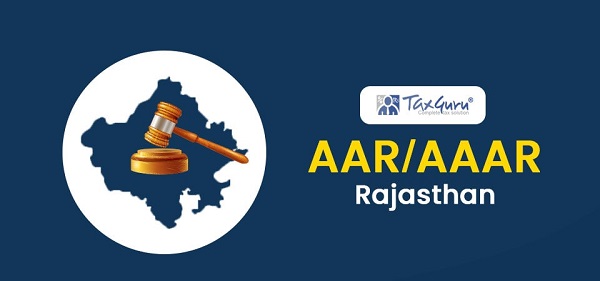
AAAR set-aside Rajasthan AAR Ruling on GST for Canteen Services in Federal-Mogul Case

GST AAAR Rajasthan Remands Case for New Ruling on Canteen Subsidies

Taxation – The Game of Life – Transfer Pricing & International Taxation

Step-by-step process for changing name of a private limited company

Mandatory Compliances for Listed Companies Under SEBI Regulations
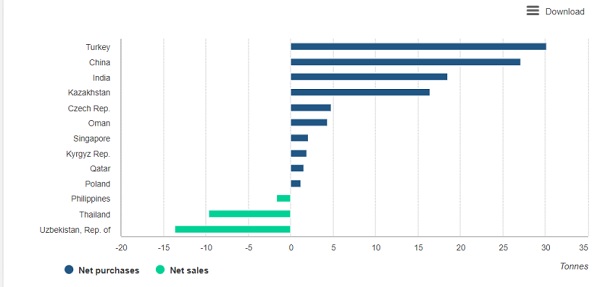
De-Dollarization: A Global Shift in Economic Power

FAQs related to FDI Policy
Featured posts.
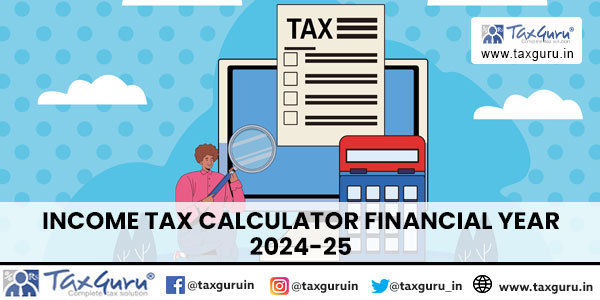
Income Tax Calculator Financial Year 2024-25

Wrong Address on Form PAS-3/SH-7 & Financials: MCA Imposes Rs. 3 Lakh Penalty
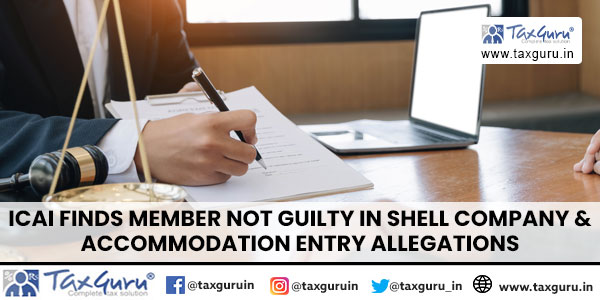
ICAI Finds Member Not Guilty in Shell Company & accommodation entry Allegations

ICAI Disciplinary Board Has No Jurisdiction over Civil Property Disputes
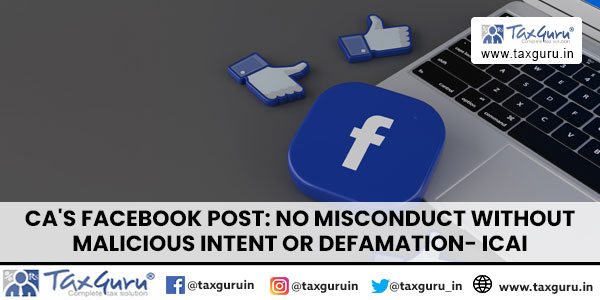
CA’s Facebook Post: No Misconduct Without Malicious Intent or Defamation- ICAI
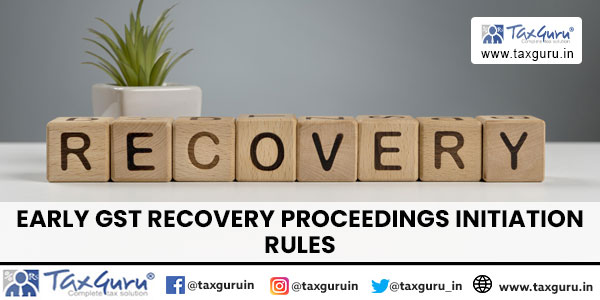
Early GST Recovery proceedings Initiation Rules
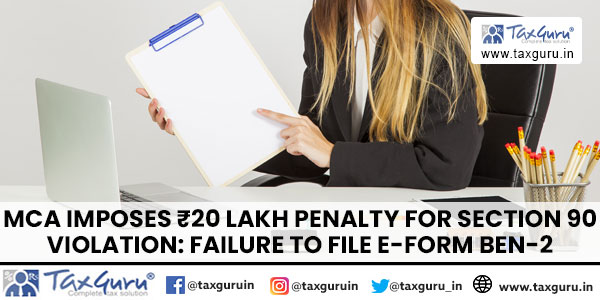
MCA Imposes ₹20 Lakh Penalty for Section 90 Violation: Failure to File e-form BEN-2

PMLA with particular reference to Arvind Kejriwal and Aam Aadmi Party (AAP)
June, 2024 Tax Compliance Tracker: Income Tax & GST Deadlines
Popular posts.

Cost Inflation Index – Meaning & Index from 1981-82 to 2024-25

Due Date Compliance Calendar May 2024

Corporate Compliance Calendar for May, 2024

Empanelment of Concurrent Auditors With Canara Bank

Empanelment with Punjab & Sind Bank for Concurrent Audit: Last Date 08/06/2024
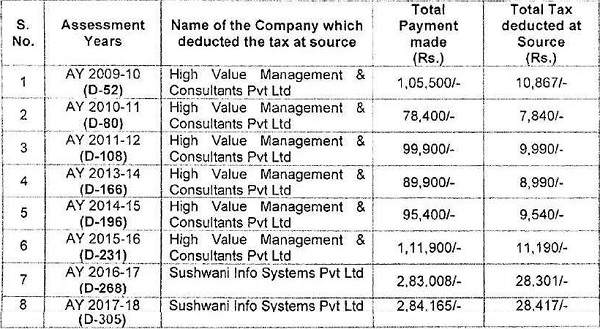
ICAI penalises CA in Practice for involvement in other business without prior permission

Sovereign Gold Bonds (SGBs) – Tax and It’s Reporting In ITR
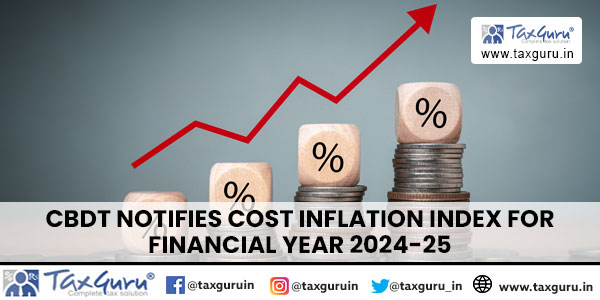
CBDT notifies Cost Inflation Index for Financial Year 2024-25

No denial of ITC merely because supplier failed to file returns & pay taxes

SIMPLIFYING UPSC IAS EXAM PREPARATION
- OUR CENTERS Bangalore Delhi Lucknow Mysuru Srinagar Dharwad Hyderabad
Call us @ 08069405205

Search Here

- An Introduction to the CSE Exam
- Personality Test
- Annual Calendar by UPSC-2024
- Common Myths about the Exam
- About Insights IAS
- Our Mission, Vision & Values
- Director's Desk
- Meet Our Team
- Our Branches
- Careers at Insights IAS
- Daily Current Affairs+PIB Summary
- Insights into Editorials
- Insta Revision Modules for Prelims
- Current Affairs Quiz
- Static Quiz
- Current Affairs RTM
- Insta-DART(CSAT)
- Insta 75 Days Revision Tests for Prelims 2024
- Secure (Mains Answer writing)
- Secure Synopsis
- Ethics Case Studies
- Insta Ethics
- Weekly Essay Challenge
- Insta Revision Modules-Mains
- Insta 75 Days Revision Tests for Mains
- Secure (Archive)
- Anthropology
- Law Optional
- Kannada Literature
- Public Administration
- English Literature
- Medical Science
- Mathematics
- Commerce & Accountancy
- Monthly Magazine: CURRENT AFFAIRS 30
- Content for Mains Enrichment (CME)
- InstaMaps: Important Places in News
- Weekly CA Magazine
- The PRIME Magazine
- Insta Revision Modules-Prelims
- Insta-DART(CSAT) Quiz
- Insta 75 days Revision Tests for Prelims 2022
- Insights SECURE(Mains Answer Writing)
- Interview Transcripts
- Previous Years' Question Papers-Prelims
- Answer Keys for Prelims PYQs
- Solve Prelims PYQs
- Previous Years' Question Papers-Mains
- UPSC CSE Syllabus
- Toppers from Insights IAS
- Testimonials
- Felicitation
- UPSC Results
- Indian Heritage & Culture
- Ancient Indian History
- Medieval Indian History
- Modern Indian History
- World History
- World Geography
- Indian Geography
- Indian Society
- Social Justice
- International Relations
- Agriculture
- Environment & Ecology
- Disaster Management
- Science & Technology
- Security Issues
- Ethics, Integrity and Aptitude

- Indian Heritage & Culture
- Enivornment & Ecology

Retrospective taxation: the Vodafone case, and the Hague court ruling
Topics Covered: Important International institutions, agencies and fora, their structure, mandate.
Retrospective taxation: the Vodafone case, and the Hague court ruling:
In a unanimous decision, the Permanent Court of Arbitration at The Hague has ruled that:
- India’s retrospective demand of Rs 22,100 crore as capital gains and withholding tax imposed on Vodafone for a 2007 deal was “in breach of the guarantee of fair and equitable treatment”.
- India should not to pursue the tax demand any more against Vodafone Group.
What is the case?
- In May 2007, Vodafone bought a 67% stake in Hutchison Whampoa for $11 billion.
- In September that year, Indian government raised a demand of Rs 7,990 crore in capital gains and withholding tax from Vodafone, saying the company should have deducted the tax at source before making a payment to Hutchison.
- Vodafone challenged the demand notice in the Bombay High Court, which ruled in favour of the Income Tax Department.
- Then, Vodafone challenged the judgment in the Supreme Court, which in 2012 ruled that Vodafone Group’s interpretation of the Income Tax Act of 1961 was correct and that it did not have to pay any taxes for the stake purchase.
- But, the same year, the then Finance Minister, the late Pranab Mukherjee, circumvented the Supreme Court’s ruling by proposing an amendment to the Finance Act, thereby giving the Income Tax Department the power to retrospectively tax such deals.
The case had by then become infamous as the ‘retrospective taxation case’.
What happened after India passed the retrospective taxation law?
The Act was passed by Parliament in 2012 and the onus to pay the taxes fell back on Vodafone.
- Later, Vodafone Group invoked Clause 9 of the Bilateral Investment Treaty (BIT) signed between India and the Netherlands in 1995.
Article 9 of the BIT says that any dispute between “an investor of one contracting party and the other contracting party in connection with an investment in the territory of the other contracting party” shall as far as possible be settled amicably through negotiations.
What is the Bilateral Investment Treaty?
The BIT was signed for promotion and protection of investment by companies of each country in the other’s jurisdiction.
- The two countries would, under the BIT, ensure that companies present in each other’s jurisdictions would be “at all times be accorded fair and equitable treatment and shall enjoy full protection and security in the territory of the other”.
What did the Permanent Court of Arbitration at The Hague say?
- It ruled in favour of Vodafone. Because, the taxation was in violation of the BIT and the United Nations Commission on International Trade Law (UNCITRAL).
- The tribunal also said that now since it had been established that India had breached the terms of the agreement, it must now stop efforts to recover the said taxes from Vodafone.
- It also directed India to pay £4.3 million ($5.47 million) to the company as compensation for its legal costs.
- What is retrospective taxation?
As the name suggests, retrospective taxation allows a country to pass a rule on taxing certain products, items or services and deals and charge companies from a time behind the date on which the law is passed.
- Countries use this route to correct any anomalies in their taxation policies that have, in the past, allowed companies to take advantage of such loopholes.
- While governments often use a retrospective amendment to taxation laws to “clarify” existing laws, it ends up hurting companies that had knowingly or unknowingly interpreted the tax rules differently.

InstaLinks :
Prelims Link:
- PCA- composition, functions and members.
- Are PCA rulings binding on parties.
- Clause 9 of the Bilateral Investment Treaty (BIT) signed between India and the Netherlands in 1995.
- Overview of UNCITRAL.
Mains Link:
Discuss the functions and significance of PCA.
Sources: the Hindu and Indian Express.

- Our Mission, Vision & Values
- Director’s Desk
- Commerce & Accountancy
- Previous Years’ Question Papers-Prelims
- Previous Years’ Question Papers-Mains
- Environment & Ecology
- Science & Technology

- TRP for UPSC Personality Test
- Interview Mentorship Programme – 2023
- Daily News & Analysis
- Daily Current Affairs Quiz
- Baba’s Explainer
- Dedicated TLP Portal
- 60 Day – Rapid Revision (RaRe) Series – 2024
- English Magazines
- Hindi Magazines
- Yojana & Kurukshetra Gist
- PT20 – Prelims Test Series
- Gurukul Foundation
- Gurukul Advanced – Launching Soon
- Prelims Exclusive Programme (PEP)
- Prelims Test Series (AIPTS)
- Integrated Learning Program (ILP) – 2025
- Connect to Conquer(C2C) 2024
- TLP Plus – 2024
- TLP Connect – 2024
- Public Administration FC – 2024
- Anthropology Foundation Course
- Anthropology Optional Test Series
- Sociology Foundation Course – 2024
- Sociology Test Series – 2023
- Geography Optional Foundation Course
- Geography Optional Test Series – Coming Soon!
- PSIR Foundation Course
- PSIR Test Series – Coming Soon
- ‘Mission ಸಂಕಲ್ಪ’ – Prelims Crash Course
- CTI (COMMERCIAL TAX INSPECTOR) Test Series & Video Classes
- Monthly Magazine
Retrospective taxation: the Vodafone case
- September 26, 2020
UPSC Articles

ECONOMY/ GOVERNANCE/ INTERNATIONAL
Topic: General Studies 3: Indian Economy and issues relating to planning, mobilization, of resources, growth, development. Government policies and interventions for development in various sectors and issues arising out of their design and implementation.
Context: The Permanent Court of Arbitration at The Hague gave a Unanimous ruling on Vodafone case.
What is the case?
- In May 2007, Vodafone International Holding (Dutch Firm) had bought a 67% stake in Hutchison Whampoa for $11 billion. This included the mobile telephony business and other assets of Hutchison in India
- In September 2007, the India government for the first time raised a demand of Rs 7,990 crore in capital gains and withholding tax from Vodafone
- Government argued that Vodafone should have deducted the tax at source before making a payment to Hutchison.
- Vodafone challenged the demand notice in the Bombay High Court, which ruled in favour of the Income Tax Department. Subsequently, Vodafone challenged the High Court judgment in the Supreme Court
- Supreme Court in 2012 ruled that Vodafone Group’s interpretation of the Income Tax Act of 1961 was correct and that it did not have to pay any taxes for the stake purchase.
How did government tried to overrule Supreme Court Judgement?
- In 2012, the government of the day circumvented the SC’s ruling by proposing an amendment to the Finance Act , thereby giving the Income Tax Department the power to retrospectively tax such deals.
- The case had by then become infamous as the ‘retrospective taxation case’.
- Once Parliament passed the amendment to the Finance Act in 2012, the onus to pay the taxes fell back on Vodafone
What is retrospective taxation?
- As the name suggests, retrospective taxation allows a country to pass a rule on taxing certain products, items or services and deals and charge companies from a time behind the date on which the law is passed
- Countries use this route to correct any anomalies in their taxation policies that have, in the past, allowed companies to take advantage of such loopholes.
- Global Norm: Apart from India, many countries including the US, the UK, the Netherlands, Canada, Belgium, Australia and Italy have retrospectively taxed companies, which had taken the benefit of loopholes in the previous law.
Consequence of Retrospective Taxation on Market
- Hurts Companies: While governments often use a retrospective amendment to taxation laws to “clarify” existing laws, it ends up hurting companies that had knowingly or unknowingly interpreted the tax rules differently.
- Hurts Investor Confidence: The amendment was criticised by investors globally, who said the change in law was “perverse” in nature. This impacted the market sentiment and the flow of foreign funds to India.
How did government tried to handle Vodafone case post global outrage?
- Following international criticism, India tried to settle the matter amicably with Vodafone, but was unable to do so
- By 2014, all attempts by the telco and the Finance Ministry to settle the issue had failed.
- In 2014, the Vodafone Group initiated arbitration against India at the Permanent Court of Arbitration at the Hague, under Article 9 of the Bilateral Investment Treaty (BIT) between India and the Netherlands.
- After the new NDA government came to power, it said it would not create any fresh tax liabilities for companies using the retrospective taxation route. But the provision in Finance Act remained.
What is the Bilateral Investment Treaty?
- In 1995, India and the Netherlands had signed a BIT for promotion and protection of investment by companies of each country in the other’s jurisdiction.
- The two countries would, under the BIT, ensure that companies present in each other’s jurisdictions would be “at all times be accorded fair and equitable treatment and shall enjoy full protection and security in the territory of the other”.
- The BIT between India and the Netherlands expired on September 22, 2016.
What did the Permanent Court of Arbitration at The Hague say?
- The court ruled that India’s retrospective demand of Rs 22,100 crore as capital gains and withholding tax imposed on Vodafone for a 2007 deal was “ in breach of the guarantee of fair and equitable treatment ”.
- The court ruled that Indian order was in violation of United Nations Commission on International Trade Law (UNCITRAL).
- The court has also asked India not to pursue the tax demand any more against Vodafone Group
Implication of the ruling
- Policy Setback: The ruling in favour of Vodafone signals a setback for the country’s retrospective taxation policies.
- Sets a precedence: The ruling also raises the possibility of other cases under arbitration being decided on similar lines.
Connecting the dots:
- Protectionism in economically interconnected world
- Bilateral Investment Treaties and Concerns
For a dedicated peer group, Motivation & Quick updates, Join our official telegram channel – https://t.me/IASbabaOfficialAccount
Subscribe to our YouTube Channel HERE to watch Explainer Videos, Strategy Sessions, Toppers Talks & many more…

Related Posts :
Cess pool: on cag report on gst, catharsis -unlock your talent & creativity: paintings by biswajit singh & song by amnisha sisters .

- [Evening Classes] Baba’s GURUKUL FOUNDATION for Freshers’ – UPSC/IAS 2025 – Above & Beyond Regular Coaching – OFFLINE and ONLINE. Suitable for Working Professionals & College Students
- DAILY CURRENT AFFAIRS IAS | UPSC Prelims and Mains Exam –1st June 2024
- UPSC Quiz – 2024 : IASbaba’s Daily Current Affairs Quiz 1st June 2024
- DAILY CURRENT AFFAIRS IAS | UPSC Prelims and Mains Exam –31st May 2024
- UPSC Quiz – 2024 : IASbaba’s Daily Current Affairs Quiz 31st May 2024
- DAILY CURRENT AFFAIRS IAS | UPSC Prelims and Mains Exam –30th May 2024
- UPSC Quiz – 2024 : IASbaba’s Daily Current Affairs Quiz 30th May 2024
- DAILY CURRENT AFFAIRS IAS | UPSC Prelims and Mains Exam –29th May 2024
- UPSC Quiz – 2024 : IASbaba’s Daily Current Affairs Quiz 29th May 2024
- DAILY CURRENT AFFAIRS IAS | UPSC Prelims and Mains Exam –28th May 2024
Don’t lose out on any important Post and Update. Learn everyday with Experts!!
Email Address
Search now.....
Sign up to receive regular updates.
Sign Up Now !

- Law of torts – Complete Reading Material
- Weekly Competition – Week 4 – September 2019
- Weekly Competition – Week 1 October 2019
- Weekly Competition – Week 2 – October 2019
- Weekly Competition – Week 3 – October 2019
- Weekly Competition – Week 4 – October 2019
- Weekly Competition – Week 5 October 2019
- Weekly Competition – Week 1 – November 2019
- Weekly Competition – Week 2 – November 2019
- Weekly Competition – Week 3 – November 2019
- Weekly Competition – Week 4 – November 2019
- Weekly Competition – Week 1 – December 2019
- Sign in / Join

- Arbitral award
- Arbitration
- Arbitration Act
- Arbitration Agreement
- Arbitration and Conciliation Act
Vodafone Idea arbitration case
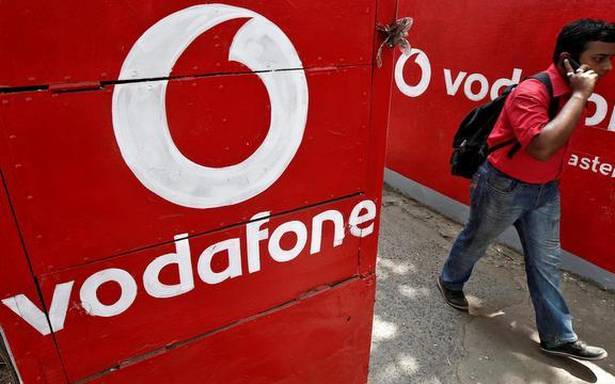
This article is written by S A Rishikesh and further updated by Gargi Lad . This article provides an insight into the infamous case of Vodafone International BV v. Govt. of India also known as ‘ the retrospective taxation case.’ It presents an overview of the background of the case with rulings of the High Court up till the Permanent Court of Arbitration. The article emphasises on the analysis of the idea of retrospective taxation and sheds light on how the case affected the development of taxation laws in India with respect to the indirect transfer of shares.
Table of Contents
Introduction
The issue paved its way back into 2007, when the deal between Vodafone and Hutchison Telecommunications International Limited (HTIL) raised questions in India, based on the notion that Hutchison Essar’s non resident parent company was liable for capital gains tax due to a “transfer” of capital assets of telecommunication businesses located in India. This interpretation of the income tax law and levy of capital gains tax was unusual for any company.
The entire issue revolves around the decision of the Ministry of Finance of India, applying a tax law retrospectively to circumvent the decision of the Supreme Court demanding INR 22,500 crores from Vodafone as capital gains and withholding tax. Immediately after this, Vodafone took this case to the Permanent Court of Arbitration in the Hague. The Court unanimously ruled in the favour of Vodafone holding the tax demand of the Indian government unfair and ‘in breach of the guarantee of fair and equitable treatment.’ The Court even asked the government to pay compensation to Vodafone.

Background of Vodafone Idea arbitration case
The facts of the case of Vodafone International Holdings B.V vs Union Of India & Anr(2012) are as follows:
Vodafone Group Plc is a company based in the United Kingdom, the business that Vodafone does in India is taken care of by its subsidiary Vodafone International Holding BV. The subsidiary is based in the Netherlands. Similarly, Hutchison Telecommunications International Limited (HTIL) company is based in Hong Kong. It provides telecommunication services to countries like Indonesia, Sri Lanka and India but does not operate directly. It also operates through its subsidiaries like CGP Investments Holdings Ltd. based in Cayman Island. CGP investment is fully owned by HTIL.
The dispute began when Hutchison Telecommunication International Limited (HTIL) decided to exit the Indian markets. They owned 67% stakes in the Hutchison Essar Limited based in India. Vodafone offered to buy a 67% stake in HTIL for US dollars 11.1 billion. Just to sum up, the deal took place between the companies based in the Netherlands and the Cayman Islands. The deal took place on Cayman Island and the assets that were transferred were of an Indian company. Hutchison Essar Limited (an Indian Company) became Vodafone Essar Limited.
The deal was completed in May 2007, the Income Tax Department of India was not very happy with the deal and initiated an investigation against Vodafone in September 2007. On October 30, 2009, the Income Tax Department served notice to Vodafone International Holdings BV asking for INR 7,900 crores as capital gains and withholding tax under Sections 201 and 201(1A) of the Income Tax Act,1961 .
Laws involved in Vodafone Idea arbitration case
Income tax act, 1961.
The Income Tax Act governs and collects capital gains tax on any transaction that takes place or accrues from an Indian asset. Any income that accrues out of such a transfer of shares can be taxed under the Income Tax Act calling it the capital gains tax. Section 9 of the IT Act talks about any such income that is a gain under Indian jurisdiction should be charged as per the Act as it is chargeable income for tax purposes in the country. Section 9 of the Income Tax Act, 1961 majorly deals with the implications of tax in case of any income that has been earned by a foreign entity or a non-resident in India.
Section 9(1)(i) also states that in case the operations of a business are not present in India or only a part of their business is being done in India then only a small part of the income earned will be taxed under the Income Tax Act. Section 9 also talks about the “permanent establishment rule” wherein if a foreign entity or resident has a fixed establishment like an office or factory that is used to carry out business in India, any income that may accrue or arise out of such business transactions will be taxable in Indian jurisdiction.
However, following the verdict passed by the Supreme Court the government amended Section 9 of the IT Act to apply it retrospectively to all such taxations.

The scope of Section 9 is wide and covers all kinds of incomes, like, an income from a business or property or asset that is situated in India, income from dividends paid by Indian companies or capital gains arising from the transfer of an asset situated in India.
Three major rules make Section 9 a crucial provision for non resident Indians or foreign entities.
The territorial nexus or the formal source rule.
The rule is clear and simple that any income that arises in India is taxable in India, the definition for such an income includes income from business, any accrued interest or capital gains that are gained over the transfer of an asset situated in India.
The residence rule
Any income that is deemed to accrue outside of India will not be taxable in India if the recipient of that deemed income is a non-resident of India. The rule is based on the residence of the individual and taxation laws and rules will apply on the basis of his or her residency.
The inclusions rule
There are certain types of income that do not fall into the above categories and hence a special inclusion has been made for those kinds. Royalties are one of those, if an individual receives royalties from an asset or business situated in India, he is liable to pay tax on those royalties under Section 9 of the IT Act.
Section 201
Section 201 of the Income Tax Act talks about failure to pay TDS (Tax Deducted at Source). TDS is a deduction made to any income which goes to the government as the tax on that accrued income. TDS is cut from salaries by the employer himself and handed over to the government on your behalf, when the employer fails to do so he is deemed as an assessee in default. A specific time frame is provided by the government to pay TDS, after which if the payer defaults he will be liable to penalties. The assessee in default is now liable to pay the TDS as charged along with a penalty.
Section 201 (1A)
When the principal officer of the company defaults in payment of TDS he shall be liable to pay simple interest at the rate of 1% every month on such tax from the date the tax was deductible to the date on which such tax is deducted. And, 1.5% every month from the date that the tax is pending to be paid off until the entire tax amount is paid off.

The interest here is on the remaining TDS that is charged as a penalty for default. In the Vodafone case, the company was served with a notice to pay a hefty sum of INR 7900 crores as capital gains tax and withholding tax, which was the accruing interest due to default in payment of the capital gains tax.
Bilateral Investment Treaty
Article 4(1).
This article provides for fair and equitable treatment to all foreign investors who are investing in companies in the country. As per the provision, any unfair rules made by the country are violative of their rights and this provision is a protection to their rights as investors. In this case, the act by the government to apply the provision of taxation retrospectively turned out to be a violation of their rights as investors and hence Vodafone approached for arbitration in The Permanent Court of Arbitration in the Hague.
Issues raised in Vodafone Idea arbitration case
- Does the transfer of shares between two foreign companies result in the extinguishment of the majority stake in the Indian company held by a foreign company?
- Can the transfer of shares between two foreign companies be considered as a transfer of capital assets?
- Is such a transaction taxable under Indian jurisdiction?
Arguments of the parties
Petitioners .
The petitioner was firm and contended that Hutchinson gain was not chargeable on tax at all under Indian jurisdiction, and hence Vodafone BV is not liable for deductions under the Act. The company was situated in the Cayman Islands and not in India. The petitioners relied on the formal source rule and contended that it was incorrect for the Hutchinson gain to be counted as a valid gain under Indian jurisdiction and to be taxed upon.
Section 9 of the Income Tax Act sets a formal source rule or the rule that means that income received from any source in India is taxable under the Indian jurisdiction, it also includes any income that is accruing or arising out of Indian assets. Here the petitioners were clearly pointing towards the company being situated in the Cayman Islands and not India and so the gains were accruing or the income that they received was not under Indian Jurisdiction. They used this rule to avoid the tax deduction or the tax liability that was arising.
Respondent
The government of India was determined on the stance that the asset was Indian, hence the gain is taxable in India and there is no question regarding the jurisdiction or applicability of the Income Tax Act.
Ruling of the Indian Courts in Vodafone Idea arbitration case

The Bombay High Court
The Income Tax Department continuously sent recovery notices to the Vodafone group and then the Vodafone group decided to seek refuge in the Bombay High Court. Vodafone approached the Bombay High Court with a writ questioning the validity of all prior notices that were being sent to Vodafone along with questioning the jurisdiction of the Income Tax Department.
The Bombay High Court on September 8, 2010, ruled in favour of the Income Tax Department of India and held, “ the very purpose of entering into agreements between the two foreigners is to acquire the controlling interest which one foreign company held in the Indian Company, by another foreign company. This being the dominant purpose of the transaction, the transaction would certainly be subject to the municipal law of India, including the Indian Income-tax Act. ” Bombay High Court even went further to term this case as a case of tax evasion and not a case of tax avoidance.
The Supreme Court of India
Vodafone, not happy with the view taken by the High Court, knocked on the doors of the Supreme Court of India. The company moved to the Supreme Court via the relief of a Special Leave Petition. The issue in front was- whether the Indian Revenue Authority could levy tax on a sale of shares between two foreign companies, where a controlling or majority stake of the Indian company is purchased in that transaction.
The Supreme Court, on the other hand, took a totally different view from the Bombay High Court and ruled in the favour of Vodafone. The Supreme Court in its January 20, 2012, ruling held that the transaction took place between the two non-resident entities and the contract was executed outside India. It was taken into account that the consideration was also passed outside India. This transaction was in no way under the jurisdiction of the Indian tax authorities and therefore the order of asking tax was quashed.
The court did look into the principle of the “corporate veil” and the idea of piercing or lifting the corporate veil. It was held that the company is independent of its shareholders and the management, and the holding company is not held liable for the acts of the subsidiary. It looked into the idea of whether the transaction was done merely to avoid taxation by piercing the corporate veil. The court also dwelled into the nature of the entire transaction and not bits and pieces of it, they further were aware of how various companies would avoid registration fees and charges levied upon them via companies situated in Mauritius or the Caymans Islands. This case was then classified under strategic tax planning and not tax evasion.
The court opined that this was a “share sale” and not an “asset sale” and there might be some variation in the taxation principles for a “share sale” and for an “asset sale”. The court also mentioned that the word “control” of the company was a question of fact and of law altogether. Further, the court was quick in interpreting that a control is not always necessarily deemed by the number of shares one holds but also by the voting rights or the voting power of the shareholders. Hence, control of power and control of the management is one of the many aspects or benefits of holding the shares of a particular quantity. The court concluded that this was a “share sale” and should be interpreted in this manner for any tax liabilities that are to be imposed.
Review Petition
The Government of India filed a review petition against the judgement on February 17, 2012, but on March 20, 2012, the Supreme Court dismissed the review petition. This was a big setback for the Indian government and many believed that things would end there.
However, there was more to come to this up and coming dispute. The dispute did not contain itself to the limits of the Indian courts and authorities but sought justice through the path of a case in the Permanent Court of Arbitration.
An unprecedented move
The decision did not go well with the Indian government in the same year, the then Finance Minister Mr Pranab Mukherjee, the late ex-President of India did something quite unpredictable. To circumvent the judgement of the Supreme Court, he introduced a retrospective amendment in the Income Tax Act, 1961. This move was first announced in the budget speech of 2012-13.
The retrospective change became effective from the year 1962 itself. This Finance Bill 2012 amended Section 9(1)(i) of the Income Tax Act,1961 and validated the tax that was imposed on Vodafone. The government said that the amendment was only a clarification to remove ambiguity that was already present and provide certainty on the other hand the move damaged the image of India as an investment destination.
Section 9 (1)(i) of the IT Act which was amended, now had explanations 4 and 5 as new additions to the provision. Explanation 5 holds immense value and importance to the Vodafone case; it reads: “An asset or a capital asset being any share or interest in a company or entity registered or incorporated outside India shall be deemed to be and shall always be deemed to have been situated in India, if the share or interest derives, directly or indirectly, its value substantially from the assets located in India”.
It cleared the air for any upcoming contentions that may arise after the Vodafone verdict, as Vodafone was adamant on the part wherein it contended that the company was not an Indian company and hence did not fall under the jurisdiction of Indian courts. Vodafone’s contentions were supported by the Supreme Court in their verdict wherein they asked the government to not demand any capital gains tax from Vodafone. The government knew this judgement would turn up against them as a precedent in various upcoming disputes and to avoid that, they came up with this amendment to Section 9.
The amendment was made to act retrospectively till the year 1961, by adding the phrase ”and shall always be deemed”. The legislative intent behind bringing in a law that acts retrospectively on taxation was to bring in clarity since the previous version of this provision led to ambiguity as to what fell under the category of capital asset taxable under the Indian jurisdiction.
What is retrospective taxation
As the name suggests, retrospective means dealing with past events. In simple words, a retrospective law can criminalise an action that was legal when committed. No law is perfect in itself and it contains its own flaws, retrospective taxation is a method to correct the same. It allows countries to pass a law on taxation from a time behind the date on which the law was passed. It is mostly used to correct anomalies in the policies that have in the past allowed the companies to take advantage of the loopholes present in that law.
India was not the first country to do something like this; the US, the UK, the Netherlands, Canada, Belgium, Australia, and Italy have also retrospectively taxed the companies that took advantage of the loopholes present in their previous law.
Reasons for passing the retrospective taxation
Usually, the use of this power, to make amendments that act in a retrospective nature, is conferred upon the legislature. This power is put to use and in effect in two circumstances; either to undo or to nullify a judicial decision that wasn’t in their favour, or sometimes to avoid the citizens from taking advantage of this loophole. In this case, the Supreme Court had decided in the favour of the taxpayer and against the government of India. When the amendment was made to the Income Tax Act that was put into action in retrospective nature as well, it clearly meant that this was done to get Vodafone within the ambit of the provision and compel the company to pay tax. This move was one of the most unusual ones since this was of an overriding nature. This amendment was a disagreement between the legislature and the judiciary, and a soft power or supremacy act that was shown by the legislature over the independent judiciary.
After the passing of the retrospective taxation law
After the passing of the new Act, the onus to settle the taxes was again on Vodafone. India faced very heavy backlash from investors abroad and in India itself. “The retrospective amendment that overturned the decision of the highest court of the land was badly drafted in its wide generalities and carried a perverse sense of vindictiveness,” said Nigam Nuggehalli , Dean of the School of Law at BML Munjal University.
In January 2013, the Income Tax Department issued a fresh demand to the Vodafone group for INR 11,280 in crores. Retrospective taxes are not favoured globally and the international pressure forced the Indian government to settle the matter with Vodafone. The Tax Administration Reforms Commission (TARC) headed by Dr. Parthasarathi Shome was formed to look into the matter afresh. The commission report also suggested retrospective legislation should be avoided. But by 2014, with the next general elections being announced, all the efforts between the telecommunication and the finance ministry failed.
The dispute being unsettled Vodafone looked for other legal methods and in the same order, it reached the Permanent Court of Arbitration in Hague, where it invoked Article 9 of the Bilateral Investment Treaty (BIT) signed between India and the Netherlands in the year 1995.
Article 9 talks about “Investment disputes” that may arise between the two investors. As per the article, they should first opt for negotiation amicably, then if, after a period of 3 months, the dispute cannot be settled by way of negotiations then they may undergo conciliation as per the United Nations Commission on International Trade Law Rules of Conciliation 1980. After conciliation proceedings are initiated and they fail, the parties may proceed with arbitration proceedings as per this article. The provision also mentions the appointment of the arbitrators and the cost of the proceedings.
Ruling of Permanent Court of Arbitration (PCA) in Vodafone Idea arbitration case
The Permanent Court of Arbitration is an intergovernmental organisation that was established in the year 1899 it is located in Hague, Netherlands. It is the oldest universal mechanism to settle inter-state disputes. It should not be misled by the name, it is not a Court at least not in the same sense as the International Court of Justice. It is a permanent and administrative framework. There are no permanent judges and ad hoc administrative tribunals are set up for each dispute that comes to the Permanent Court of Arbitration.
Vodafone International Holdings BV (The Netherlands) v. Government of India, (2016)
It was an investor-state dispute where the Court ruled in favour of the investor. The arbitration panel consisted of three members one of which was neutral and one each nominated by the party to the case. The decision was unanimously against India which means all three members voted in favour of Vodafone. Even the panellist nominated by India Rodrigo Oreamuno voted against India and found no merit in India’s case.
Mr. Rodrigo, along with the other two arbitrators on the panel, found it to be a breach of the clause of fair and equitable treatment mentioned in the BIT. Since fair treatment was guaranteed under the BIT it was the duty of the respondent, in this case India to uphold that duty and to provide equitable treatment.
The reason why the decision went in the favour of Vodafone was the violation of the bilateral investment treaty and the United Nations Commission on International Trade Law (UNCITRAL). Article 9(1) of the BIT says that “ any dispute between an investor of one contracting party and the other contracting party in connection with an investment in the territory of the other contracting party shall as far as possible be settled amicably through negotiations between the parties to the dispute” . Article 3(5) of the Arbitration Rules of UNCITRAL , says that the “ constitution of the arbitral tribunal shall not be hindered by any controversy with respect to the sufficiency of the notice of arbitration, which shall be finally resolved by the arbitral tribunal. ”
The award was as follows:
- Claimant’s claim that the breach of a bilateral investment treaty between the Kingdom of the Netherlands and the Republic of India for promotion and protection of investments done at The Hague on November 6, 1995, is considered and the Tribunal has jurisdiction over it.
- There is a breach of Article 4(1) of the Bilateral Investment Treaty, by the Indian Government “the protection of the guarantee of fair and equitable treatment” is also violated.
- The Government of India is not entitled to claim any tax from Vodafone and should stop any effort to recover the same.
- The 60% cost of arbitration has to be paid by the government of India to the petitioners.
Reasoning for the award
The court relied upon Article 4(1) of the Treaty, which said “protection of the guarantee of fair and equitable treatment”. This meant that the court was of the belief that the treaty was a guarantee or an umbrella protection for the foreign investors that there would be a fair and equitable treatment, that included a proper reliable legal framework and no unnecessary disputes. It also guaranteed that the due process of law would be followed between both parties and there shall be no concealing or fraudulent activities between the two.
The court saw the intent of the Indian Govt. where there were amendments that were brought into to make Vodafone liable retrospectively. The decision of the Indian Govt to introduce such provisions in the Income Tax Act seemed to be made in haste and targeted towards Vodafone entirely. This was considered as unfair treatment towards Vodafone and was not considered to be of an equitable nature at all and hence the arbitral award that was passed was against the Indian Govt.

Impact of the award

The award reinforces the trust that investors may have lost due to a breach of fair and equitable treatment. Since retrospective taxation was applied, it created a stir among investors and there was quite a fair amount of withdrawals. This award was a landmark one in showing that there still is scope left for justice. The arbitrator appointed by India himself found no merit in this case as he also knew it was a breach of the clause and protection guaranteed under the BIT.
Latest development
The Ministry of Finance on August 5, 2021, introduced the Taxation Laws Amendment Bill, 2021 in Lok Sabha. This bill removes the contentious retrospective tax demands. According to this new bill any tax demanded for the indirect transfer of Indian assets before May 2012, would be nullified on fulfilment of specific conditions. The conditions include withdrawal of pending litigation by such taxpayers and also a promise that no demand for damages will be made in future. The amendment also proposes to refund the taxes already paid by the concerned taxpayer but without any interest. This move of the central government will benefit both Vodafone and Cairn Energy who were having a legal battle with the Government of India.
The Indian govt. has sought an appeal in Singapore and the case has been referred to a senior court in Singapore. The appeal was filed to set aside the award on the grounds of issue in jurisdiction. India believes that the right to levy tax is the predominant and ultimate right of the country, and hence cannot be challenged under any BIT. BITs are majorly brought in to protect the investors and are not in any way related to taxation. The tax being levied by the Indian government in these cases is on the returns that are gained by the companies based on these investments or transfers of shares. These transactions are protected under the Act but not the taxation that follows.
The Cairn case is very similar to the Vodafone case. Cairn India Holding company in India is an oil exploration company, they are the ones who found oil in Rajasthan, India’s biggest onshore find. It is a fully owned subsidiary of Cairn UK Holding which in turn is a subsidiary of Cairn Energy.
In the Cairn case, Indian assets were transferred by Cairn Energy, the parent company to Cairn India Holding. In 2006, it acquired the entire share capital of Cairn India holding from Cairn UK Holdings. The UK Holdings held 69% of Cairn India Holding. All are part of the same group. This transfer took place because Cairn India Holdings had to go for IPO in India.
In 2011 Cairn Energy sold its shares to Vedanta Group. Again the income tax department intervened and levied taxes upon Cairn Energy based on retrospective taxation.
Arguments by Cairn in the following case were based on the idea of negating retrospective taxation. They contended that prior to the retrospective application of this taxation provision, there was no tax imposed upon the incidental transfer of shares. This exceptional levy of taxes was said to breach the Bilateral Investment Treaty between the UK and India.
This case also went to the Permanent Court of Arbitration and the decision came against India. The court ruled that India had violated the UK- India Bilateral Investment Treaty and it also directed India to pay compensation with interest alongside the arbitration costs to Cairn.
With the decision of two arbitration cases against India. The government needs to accept the truth and rectify its mistakes. When you are already in a pit there is no point in digging it further. The amendment of 2012, has seen three finance ministers from then but none of them tried to change it.
A bad idea only gets worse with time. The amendment brought for Vodafone was used against Cairn. India lost both cases in the Permanent Court of Arbitration and faced embarrassment. The current government has made public statements that India will not use this retrospective law but as long as the law is there, there will be a temptation to use it. With Nirmala Sitaraman introducing the new amendment bill in the retrospective taxation law, there is a hope that the image of India will improve in the international business community.
Frequently Asked Questions (FAQs)
What is retrospective taxation.
This means a levy of tax on goods or services sold in the past. This can happen due to a new law that was imposed that was not in action when the goods were actually sold, however, it is now applicable and hence you are liable to pay for that tax. Retrospective taxation involves including or introducing a newer provision in an existing law or statute, this provision takes a retrospective effect and will apply to transactions that took place even before the introduction of this provision.
Why is retrospective taxation needed?
To reduce any abnormality in the taxation laws or to prevent the taxpayers from taking advantage of the loopholes present in the taxation system. It is done to demote tax evasion and increase the government’s tax revenue.
What is the Bilateral Investment Treaty?
A bilateral investment treaty is an agreement between the governments of two or more states that contains terms and conditions for private investments by nationals and companies of one state into another state.
Usually, a BIT remains in force for approximately 10 to 15 years or as per the agreement between both countries. If any treaty is to be terminated prior to the expiry period, the terms and conditions for the same are provided in the treaty itself.
What is the relation between BIT and Foreign Direct Investment?
Bilateral Investment Treaties act as a stimulating force for any foreign direct investment. They are the bible and safeguarding source for any foreign investors. Bilateral treaties signed between two countries safeguard their investors from any fraud or malicious activities keeping the investors secure, this encourages foreign direct investment and more investors to invest in businesses overseas. Once any investor feels that the transaction is secured he would likely be more involved in making more such transactions, directly increasing the number of foreign direct investments.
Where were the arbitration proceedings held?
The proceedings took place at the Permanent Court of Arbitration in Hague.
Who was on the arbitration panel for the proceedings?
Canadian trial lawyer- Yves Fortier appointed by Vodafone. Costa Rican lawyer- Rodrigo Oreamuno appointed by India. Sir Franklin Berman as the presiding arbitrator amongst them.
What was the tax levied upon Vodafone?
The tax was called “the capital gains tax”. This is usually levied when there is a transfer of any asset and if there is a gain on that asset, then there is a tax levied upon that gain.
How is capital gains tax calculated?
The calculation of the tax is on the basis of the capital asset and the gain. It also depends on whether the gain was short term in nature or long term.
What is the formal source rule?
The rule means that income received from any source in India is taxable under the Indian jurisdiction, it also includes any income that is accruing or arising out of Indian assets. In simpler terms, the source of the income shall be within the jurisdiction of Indian Courts.
What are Investor- State Dispute Settlements (ISDS)?
This acts like a public international law wherein a private individual (the foreign investor) gets to sue a state or a country for enforcing their rights. In most circumstances, investors who have foreign direct investments in the state have problems with current laws and might find them to be violative of their rights. The investor gains this right to sue the state by way of investment agreements usually known as Bilateral Investment Treaties, as they have clauses and provisions that protect the investor from any actions of the State. These disputes often are solved by way of arbitration under varied international authorities, amongst one is the Permanent Court of Arbitration.
- https://www.business-standard.com/article/economy-policy/a-legal-analysis-of-the-triumph-112012300014_1.html
- https://business.rediff.com/column/2010/oct/11/guest-few-lessons-from-vodafone-case.htm
- https://byjus.com/free-ias-prep/bitbilateral-investment-treaty/
- https://indianexpress.com/article/explained/cairn-energy-ceo-finsecy-meet-today-tax-dispute-case-explained-7194012/
- https://www.livelaw.in/top-stories/centre-taxation-laws-amendment-bill-nullify-retrospective-tax-demand-indirect-transfer-finance-act-2012-178948
- https://www.thehindu.com/business/centre-moves-to-redact-retrospective-tax-law/article35745993.ece
- https://journals.sagepub.com/doi/pdf/10.1177/0256090916666681
- https://doi.org/10.1016/j.worlddev.2005.07.001
- https://www.scconline.com/blog/post/2022/11/29/vodafone-versus-india-a-never-ending-saga/
- https://www.nishithdesai.com/fileadmin/user_upload/pdfs/Research_Papers/Vodafone-Holdings-B.V.-versus-Republic-of-India.pdf
- https://taxguru.in/income-tax/vodafone-case-analysis.html#google_vignette
Students of Lawsikho courses regularly produce writing assignments and work on practical exercises as a part of their coursework and develop themselves in real-life practical skills.
LawSikho has created a telegram group for exchanging legal knowledge, referrals, and various opportunities. You can click on this link and join:
https://t.me/lawyerscommunity
Follow us on Instagram and subscribe to our YouTube channel for more amazing legal content.

RELATED ARTICLES MORE FROM AUTHOR
Arbitration procedure under the arbitration and conciliation act , tribunal secretaries in indian arbitration , ad hoc arbitration, leave a reply cancel reply.
Save my name, email, and website in this browser for the next time I comment.
International Opportunities in Contract Drafting

Register now
Thank you for registering with us, you made the right choice.
Congratulations! You have successfully registered for the webinar. See you there.
Vodafone Tax Saga explained

In today's Finshots, we talk about the latest ruling on the Vodafone Tax matter and explain the whole case in as few words as possible.
So hold tight. This one is going to get bumpy!!!
The case begins with Hutchison Telecommunications International Limited. We’ll keep it short and just call this company HTIL. Based in the Cayman Islands, HTIL was a telecommunication giant providing mobile and internet services in countries like Indonesia, Sri Lanka and India. And although this company was the original brainchild, they did not explicitly intervene in matters. Instead, they used buffers. Buffers like CGP Investments Limited.
CGP Investments was another company based in the Cayman Islands but fully owned by HTIL. And CGP had made some big investments, at least on paper. The company owned shares in several Mauritius-based entities who in turn owned stake in certain Indian companies and ultimately held a 67 % stake in Hutchison Essar Ltd. — a joint venture between Hutch and Essar and one of the leading players in the Indian telecom industry.
So technically Hutch (HTIL) was managing its India operations through a web of companies based in Mauritius and the Cayman Islands. Until one day they finally decided to exit the country altogether. They were looking for a buyer and the Dutch-based — Vodafone International Holdings answered the call. They paid $11.1 billion to HTIL and acquired CGP Investments in a bid to take control of Hutchison’s India operations. Hutch Essar became Vodafone Essar. And that should have been that. But then…
The taxman cried foul.
In September 2007, India’s tax department initiated proceedings against Vodafone International Holdings and Vodafone Essar in an attempt to recover around $2.1 billion in taxes. Their contention was simple. This transaction, by all accounts, involved the sale of Indian assets and as such any gains made in the process should have been taxed here, in India. But Vodafone disagreed with this assessment. After all, HTIL sold a Cayman-based company — CGP Investments, to a Dutch based company — Vodafone International Holdings. How on earth could you tax a transaction that involves the sale of a foreign company to a foreign entity? It’s preposterous.
But since tax authorities weren’t relenting, Vodafone approached the Bombay High Court seeking refuge. But the court…
Well, they saw things differently. For starters, it was quite apparent that CGP did not have an independent existence. Hell, it did not even have a bank account. So really, any entity that’s buying CGP isn’t actually interested in the shares of CGP, but all the things that come with it. And to this effect, the court argued that the sale of CGP Investments was not adequate in itself to achieve the object of consummating the transaction. The transaction was only complete when all the rights and entitlements of Hutchison’s Indian assets were transferred. And as such, the tax authorities had every right to purse Vodafone, it said.
Vodafone however, did not relent. The company approached the Supreme Court where the discussion largely revolved around one subject— Was this a deliberate case of tax avoidance or was it simply prudent tax planning? After all, if Vodafone had designed the transaction in a deliberate ploy to avoid taxes, they could be held liable. But if they could prove they had simply executed the transaction without ill intention, maybe they’d get some reprieve. And after lengthy deliberations, the Supreme Court opined that the sale did not amount to tax avoidance. The judges ruled that Vodafone no longer had to pay taxes on this transaction and that should have been the end of this conversation.
But then, the government did something quite unpredictable. They introduced a new tax bill amending existing regulations all in an attempt to force Vodafone to pay up their “alleged” dues. It was retrospective legislation — meaning it gave tax authorities the leeway to reassess transactions dating back to 1962. And the amendments only affected parts of the tax code that allowed the Supreme Court to interpret the matter the way it did. So technically, if the matter went to court once again, the judges would be forced to rule against Vodafone.
And that meant, the company only had one option left. To pursue this case in an international court.
Vodafone approached the permanent court of arbitration at Hague contesting that the amendment of the tax code amounted to a gross violation of fair and equitable treatment promised under two separate Bilateral Investment Treaties (BIT)— The India-Netherlands BIT and the India-UK BIT.
It took them a while, but in the end, the international court ruled in favour of Vodafone arguing that India had breached the terms of the agreement and it must now stop efforts to recover the said taxes from the company.
So does this mean, the tax authorities can no longer pursue Vodafone?
Well… We can’t say for sure.
See, the international court also ruled that the government had to turn over the ₹45 crores they’ve collected so far (from Vodafone) and further compensate them for all the charges borne at the tribunal. That’s another ₹40 crores. So technically they might appeal the decision in one of those appeal courts. Or they could simply choose to not honour the verdict at all. After all, India has always contested that a tax demand such as this cannot be adjudicated by a foreign court i.e. If the legislators decide to pass a law, then all entities within the state are bound to honour it. Foreign courts have little jurisdiction here.
The only downside is that if the government disregards the ruling entirely, India’s place as an enticing investment destination might forever be damaged beyond repair. So what do you think?
Will the government finally relent? Or will they fight this one more time?
Let us know your thoughts on Twitter
Share this Finshots on WhatsApp , Twitter , or LinkedIn .
Also you can check our daily brief here. In today's issue we talk about Google's anti-trust case, Spotify's podcasts, and an out of the world marketing campaign. Do read the full draft :)
Until next time...
Join 5,00,000+ Subscribers
Be a part of our ever growing community. Join us on Twitter
Join 5,00,000+ readers today
Add Finshots to you inbox - get the latest financial insights for free.
Join 5,00,000+ readers in staying updated on the most important financial news.
Just 3-min a day. No spam. No jargon. Pinky promise.

Bringing you the Best Analytical Legal News
Vodafone versus India: A Never-Ending Saga
by Swarnendu Chatterjee† and Anwesha Pal†† Cite as: 2022 SCC OnLine Blog Exp 82
- Click to share on Facebook (Opens in new window)
- Click to share on Twitter (Opens in new window)
- Click to share on LinkedIn (Opens in new window)
- Click to share on WhatsApp (Opens in new window)
- Click to print (Opens in new window)
- Click to email a link to a friend (Opens in new window)
- Click to share on Telegram (Opens in new window)
- Click to share on Reddit (Opens in new window)
- Click to share on Tumblr (Opens in new window)
- Click to share on Pinterest (Opens in new window)
- Click to share on Pocket (Opens in new window)
- Click to share on Skype (Opens in new window)
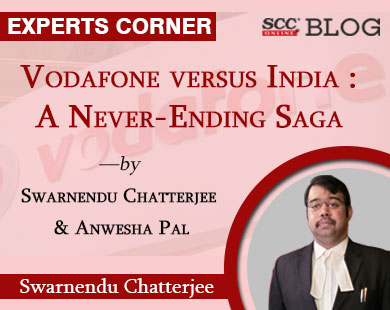
Introduction
The Supreme Court is the Apex Court of the country, it is called the sentinel on the qui vive. However, what if someone is not satisfied with its ruling? What if there is some scope left through a party that can win the case? Under municipal laws, there is no further recourse. However, for cases, under the domain of international law, the concept changes and varies. International courts provide for the further steps that may be resorted to, if a party so wishes. The increasing burden and delay in the courts have led to the emergence of arbitration. Such proceedings are relied upon as they are said to be more compatible and convenient. One of the most long-running cases, the Vodafone case also sought the option of proceeding to the Permanent Court of Arbitration (PCA).
The first instance that took place, in this case, sets back to the year 2007. It was not much obvious that the amendment in the taxation laws in the year 2012 will make the parties proceed to PCA. The cases where the parties are of more than one country, cases are often carried out through arbitration. Recently, in September 2020, the award was passed by PCA in favour of Vodafone Holdings Ltd. as the case was against the Indian Government, it is now of utmost importance that what will be the next step of the Indian Government. The case that is decided by PCA is Vodafone International Holdings BV v. Govt. of India . 1
Background of the case
The bilateral agreement between Hutchison Essar Limited (Indian company) and Vodafone International Holdings (VIHBV) (an entity of Netherlands) was signed in 2007, in which a Hong Kong based entity through a series of subsidiaries sold its stake and led to the bilateral agreement. The agreement was a result of holding the shares of Indian company to the Netherlands entity for approximately eleven billion as consideration.
The profit that the Hong Kong entity earned through this deal, triggered the Indian Government, which demanded tax payment by VIHBV for the acquisition of the stake of the Indian company. The tax was being demanded as per Section 195 of the Income Tax Act, 1961 . On the failure of payment by the VIHBV, a case was initiated against the company. However, the decision of the Supreme Court 2 supported the VIHBV and quashed the order concerning the demand for payment of INR 25 billion by the company.
The judgment triggered the Government which in turn led to the retrospective amendment of the taxation law. The amendment clarified that the payment of taxes by VIBHV was now necessary. The arbitration proceeding then started, as the VIBHV was aggrieved by the retrospective amendment. A notice was issued by the PCA to the Indian Government as per India-Netherlands bilateral investment treaty (BIT).
The proceedings started in the year 2014. However, the Indian Government also filed a suit in the Indian court for restraining Vodafone from initiating arbitration proceedings. However, this did not work, and the arbitration proceedings took place which continued till 25-9-2020. On this date, PCA passed the Vodafone award. The award is controversial and as per reports, Central Government is considering filing an appeal against the said award.
Bilateral investment treaty between India and Netherlands
The retrospective amendment that took place in 2012 could have been challenged in India. However, the arbitration proceedings were chosen with the reasoning, that the articles of BIT between India and Netherlands were being violated. Also, the company needed to take this step as it was found that in the year 2016, many of the BITS between India and other countries were terminated by India itself. 3
The treaty that was signed between India and the Netherlands stated the “fair and equitable standard”. However, it was noted that the amendment has limited the scope, and this is now available only in limited situations. This has replaced the carte blanche approach. 4 However, the articles that are present in the treaty cannot be revoked in such a manner as it will lead to situations that will cause losses to both the parties and further, forms the basis of the treaty.
Indian retrospective tax legislation — Amendments to the Income Tax Act consistent with global initiatives to tax indirect transfer of assets
After the judgment of the Supreme Court in Vodafone case 5 in 2012, the Indian Parliament passed the Finance Act, 2012 , which gave inter alia to the addition of two clarifications in Section 9(1)( i ) of the Income Tax Act (2012 Amendment). The principal clarification explained the importance of the expression “through” which stated that “For the removal of doubts, it is hereby clarified that the expression ‘through’ will mean and incorporate and will be considered to have consistently implied and included ‘by means of’, ‘in accordance of’ or ‘by reason of’. The subsequent clarification explained that ” an asset or a capital asset being any share or interest in an organisation or element enlisted or consolidated external India will be and will consistently be considered to have been arranged in India, if the offer or premium determines, straightforwardly or by implication, its worth considerably from the resources situated in India”.
The 2012 amendment additionally explained that the term “transfer” incorporates and will be considered to have consistently included discarding or leaving behind a resource or any premium in that, or making any revenue in any resource in any way at all, straightforwardly or in a roundabout way, totally or restrictively, wilfully or automatically, via an arrangement (regardless of whether went into in India or outside India) or something else, despite that such exchange of rights had been portrayed as being affected or subordinate upon or moving from the exchange of an offer or portions of an organisation enlisted or consolidated external India.
The amendment was basically acquainted by the Government to plug a hole that existed in the Indian income tax system. While capital increases charge was payable on exchange of resources situated in India, there was vagueness in regard of whether capital additions charge was payable even in situations where an offer buy exchange between foreign entities that did not bring about an immediate exchange of the resources situated in India.
For instance, in Vodafone case 6 , the resources in India were held by a shell organisation in the Cayman Islands and the offer to buy exchange among Vodafone and Hutchison identified with acquisition of the single portion of this shell organisation. The exchange of resources in India occurred by implication. Although the Supreme Court in the long run held that capital increases expense could not be demanded on quite a circuitous exchange of resources, the contrary view — that capital additions duty could be collected on offer buy exchanges that in a roundabout way and successfully brought about an exchange of resources in India — was additionally conceivable on a translation of the applicable arrangements of the Income Tax Act.
The PCA award
After thirteen years of long and disputed procedure, the award was passed by PCA on 25-9-2020. The award favoured Vodafone and stated that the amount of tax that was demanded by the Indian Government was not payable, as per the treaty. The amount was approx. INR 22,100 crores. The key aspects which form a part of the award are as follows: 7
Netherlands was entitled to have the benefit of fair and equitable treatment under the treaty.
The challenge put forth by the Indian Government to the final judgment and order of the Supreme Court constituted a breach of the agreement.
The breach was not avoidable and might lead to international responsibilities on India
India needs to pay an amount to Vodafone, as damages.
The award is interestingly a complex one, including the emphasis on Article 4(1) of the BIT. Along with the explanation of the BIT, it has also included the scope of India’s legislature and its duty. The order that was passed by the Supreme Court which was sought to be overruled by the amendment has been mentioned as a breach. There has been a similar case in 2011 8 , which was in favour of White Industries and was against India. Also, there have been maritime awards that have been passed in 2014 which were also against India.
The Tribunal has directed India for reimbursing INR 850 million to Vodafone as legal costs. The entire award is not available for the public as it is the choice of parties in arbitration if they want to keep the award public or private. The award seems to be beneficial for India too. The model of BIT has been revised by India. Several clauses of the BIT model have been revised so that no further complications arise when India enters BIT with other countries 9 .
The matter has been in news and has been also discussed amongst the personnel of the Government. There have been different pieces of information coming out through different sources. The Tribunal has stated the Government has time till 24-12-2020, to send a reply regarding the award. It has been reported the reply of the Centre is not confirmed, as there are two points, and the Centre can rely on any one of them.
The two probable views are related to India’s position for other future BITs or to reserve India’s right of taxation. However, as per media reports, the Solicitor General of India is in support of filing an appeal and Singapore is being chosen as the place of appeal. 10 The views are of utmost importance as it will affect the future treaties of India.
Also, the creation of a proper corporate structure is needed which has been revealed through various instances. The cases in which India terminated the BIT are to be considered as a lesson after this case. The revised model of BIT is also being considered as a step that has been taken after the passing of the Vodafone PCA award.
The shift of the case from India to international arbitration shows that the international parties rely more on the proceedings of arbitration. The retrospective amendment which sought to overrule the judgment passed by the Supreme Court led to the inclusion of PCA in the case. It is very important to keep in mind all the points that would affect the position of the country in the outside world. India endeavours and can possibly be a speculator investor-friendly jurisdiction and whether India will have the option to accomplish this objective will rely upon the advances that the public authority will make in its authoritative structure. The methodology of India to venture interventions should be returned to as the current position is indicating an opposite pattern. The endeavours of the public authority and the legal executive cannot be overlooked notwithstanding, regardless of these endeavours, India has not had the option to accomplish its objective of turning into the most favoured destination for investment. A general improvement in the arbitrational environment will positively affect the simplicity of working together which will, in the end, prompt more foreign investments.
The judgment conveyed by PCA will have a material bearing on comparable cases, wherein such issues are included and tax collection from foreign institution investors will be affected because of the Vodafone decision. India is engaged with over twelve comparable situations where review charge cases and retraction of agreements are being referred to and this decision will likewise influence those situations where the duty interest of India is genuine. One may likewise contend that the decision of PCA is a colossal misfortune for India as it included a considerable issue of unfamiliar financial specialists meeting their expense commitments
The award has been passed by the PCA. Now it is important to see what will be the next step that Indian Government will take in order to safeguard its interest. The step that will be taken at this point of time will have an effect in the future treaties too. Such decisions need to be taken after consideration of all the possible situations that can take place. It is also a lesson that before the decisions taken regarding the amendments, the articles of the BIT must be kept in mind. The appeal (as per media reports) is pending, and we need to await whether India will be able to safeguard its interests.
†Advocate-on-Record, Supreme Court of India.
††PhD Scholar and Teaching Assistant WBNUJS, Kolkata.
1. PCA Case No. 2016-35 (Dutch BIT Claim).
2. Vodafone International Holdings BV v. Union of India, (2012) 6 SCC 613 . (2012) 6 SCC 613.
3. BIT, Department of economic Affairs
< https://www.dea.gov.in/bipa >.
4. Relevant excerpts from Art. 3 of India’s revised BIT model state:
“3.1 No party shall subject investments made by investors of the other party to measures which constitute a violation of customary international law through: ( i ) denial of justice in any judicial or administrative proceedings; or ( ii ) fundamental breach of due process; or ( iii ) targeted discrimination on manifestly unjustified grounds, such as gender, race or religious belief; or ( iv ) manifestly abusive treatment, such as coercion, duress and harassment.
3.2 Each party shall accord in its territory to investments of the other party and to investors with respect to their investment’s full protection and security. For greater certainty, ‘full protection and security’ only refers to a party’s obligations relating to physical security of investors and to investments made by the investors of the other party and not to any other obligation whatsoever.”
5. (2012) 6 SCC 613 .
6. (2012) 6 SCC 613 .
7. Mukesh Butani and Tarun Jain, “What Next after the Vodafone Tax Arbitration?”, 30-9-2020
< https://www.fortuneindia.com/opinion/what-next-after-the-vodafone-tax-arbitration/104758 >.
8. In the Matter of an Uncitral Arbitration in Singapore under the Agreement Between the Government of Australia and the Government of the Republic of India on the Promotion and Protection of Investments
9. Tarun Jain, Shankey Agrawal, “Investment Treaties Interjecting Taxation’s Realm: The Latest in Vodafone’s India Saga”, October 13-10-2020 [See HERE ]
10. “Vodafone Arbitration Award: Issue Discussed with PM Modi; Centre may Challenge Case”, 1-12-2020
< https://www.businesstoday.in/latest/corporate/story/vodafone-arbitration-award-issue-discussed-with-pm-modi-centre-may-challenge-280247-2020-12-01 >.

Section 125 CrPC: Can the second wife be entitled to maintenance from her husband?

Delhi HC granted bail to a man accused of raping woman he met on dating app on pretext of marriage

Do convicts have a fundamental right to procreate? Watch to know what Delhi High Court recently held

Book release of 8th edition of “Criminology, Penology and Victimology” revised by Sanjay Vashishtha
Join the discussion, leave a reply cancel reply.
Your email address will not be published. Required fields are marked *
Save my name, email, and website in this browser for the next time I comment.
Notify me of follow-up comments by email.
Notify me of new posts by email.
This site uses Akismet to reduce spam. Learn how your comment data is processed .
- International
- Today’s Paper
- EXIT POLL RESULTS 2024
- 🗳️ History of Elections
- Premium Stories
- Brand Solutions
Retrospective taxation: the Vodafone case, and the Hague court ruling
The court has also asked india not to pursue the tax demand any more against vodafone group..
In a unanimous decision, the Permanent Court of Arbitration at The Hague on Friday ruled that India’s retrospective demand of Rs 22,100 crore as capital gains and withholding tax imposed on the British telecommunication company for a 2007 deal was “in breach of the guarantee of fair and equitable treatment”. The court has also asked India not to pursue the tax demand any more against Vodafone Group.
What is the case?
In May 2007, Vodafone had bought a 67% stake in Hutchison Whampoa for $11 billion. This included the mobile telephony business and other assets of Hutchison in India. In September that year, the India government for the first time raised a demand of Rs 7,990 crore in capital gains and withholding tax from Vodafone, saying the company should have deducted the tax at source before making a payment to Hutchison.

Vodafone challenged the demand notice in the Bombay High Court, which ruled in favour of the Income Tax Department. Subsequently, Vodafone challenged the High Court judgment in the Supreme Court, which in 2012 ruled that Vodafone Group’s interpretation of the Income Tax Act of 1961 was correct and that it did not have to pay any taxes for the stake purchase.
The same year, the then Finance Minister, the late Pranab Mukherjee, circumvented the Supreme Court’s ruling by proposing an amendment to the Finance Act, thereby giving the Income Tax Department the power to retrospectively tax such deals. The Act was passed by Parliament that year and the onus to pay the taxes fell back on Vodafone. The case had by then become infamous as the ‘retrospective taxation case’.
The ruling in favour of Vodafone signals a setback for the country's retrospective taxation policies. It also raises the possibility of other cases under arbitration being decided on similar lines.
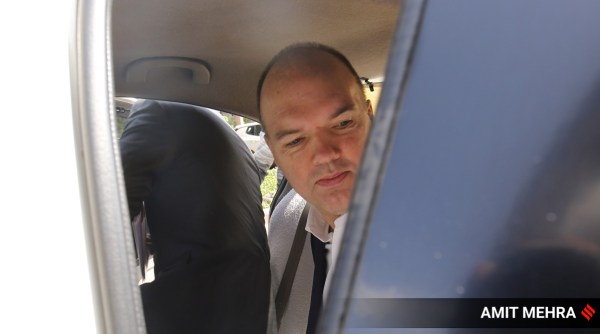
What is retrospective taxation?
As the name suggests, retrospective taxation allows a country to pass a rule on taxing certain products, items or services and deals and charge companies from a time behind the date on which the law is passed.

Countries use this route to correct any anomalies in their taxation policies that have, in the past, allowed companies to take advantage of such loopholes. While governments often use a retrospective amendment to taxation laws to “clarify” existing laws, it ends up hurting companies that had knowingly or unknowingly interpreted the tax rules differently.
Apart from India, many countries including the US, the UK, the Netherlands, Canada, Belgium, Australia and Italy have retrospectively taxed companies, which had taken the benefit of loopholes in the previous law.
Also read | Govt may have to shell out Rs 85 crore if it decides not to appeal
What happened after India passed the retrospective taxation law?
Once Parliament passed the amendment to the Finance Act in 2012, the onus to pay the taxes fell back on Vodafone. The amendment was criticised by investors globally, who said the change in law was “perverse” in nature.
“The retrospective amendment that overturned the decision of the highest court of the land was badly drafted in its wide generalities and carried a perverse sense of vindictiveness,” said Nigam Nuggehalli, Dean of the School of Law at BML Munjal University.
Following international criticism, India tried to settle the matter amicably with Vodafone, but was unable to do so. After the new NDA government came to power, it said it would not create any fresh tax liabilities for companies using the retrospective taxation route.
By 2014, all attempts by the telco and the Finance Ministry to settle the issue had failed. Vodafone Group then invoked Clause 9 of the Bilateral Investment Treaty (BIT) signed between India and the Netherlands in 1995.
Also read | Explained Ideas: What can the government do to revive India’s telecom industry?
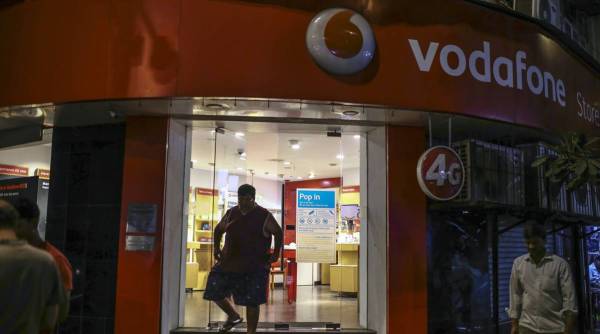
What is the Bilateral Investment Treaty?
On November 6, 1995, India and the Netherlands had signed a BIT for promotion and protection of investment by companies of each country in the other’s jurisdiction.
Among the various agreements, the treaty had then stated that both countries would strive to “encourage and promote favourable conditions for investors” of the other country. The two countries would, under the BIT, ensure that companies present in each other’s jurisdictions would be “at all times be accorded fair and equitable treatment and shall enjoy full protection and security in the territory of the other”.
While the treaty was between India and the Netherlands, Vodafone invoked it as its Dutch unit, Vodafone International Holdings BV, had bought the Indian business operations of Hutchinson Telecommunicaton International Ltd. This made it a transaction between a Dutch firm and an Indian firm.
The BIT between India and the Netherlands expired on September 22, 2016.
📣 Express Explained is now on Telegram . Click here to join our channel (@ieexplained) and stay updated with the latest
What did the Permanent Court of Arbitration at The Hague say?
One of the major factors for the Court of Arbitration to rule in favour of Vodafone was the violation of the BIT and the United Nations Commission on International Trade Law (UNCITRAL).
In 2014, when the Vodafone Group had initiated arbitration against India at the Court of Arbitration, it had done so under Article 9 of the BIT between India and the Netherlands.
Article 9 of the BIT says that any dispute between “an investor of one contracting party and the other contracting party in connection with an investment in the territory of the other contracting party” shall as far as possible be settled amicably through negotiations.
The other was Article 3 of the arbitration rules of UNCITRAL, which, among other things, says that “constitution of the arbitral tribunal shall not be hindered by any controversy with respect to the sufficiency of the notice of arbitration, which shall be finally resolved by the arbitral tribunal”.
- A country where divorce is illegal: How the Philippines is attempting to allow legal separation
- Using AI and ChatGPT in legal cases: What Indian courts have said
- Monsoon to hit Kerala within five days: What does the 'onset of monsoon' mean?
In its ruling, the arbitration tribunal also said that now since it had been established that India had breached the terms of the agreement, it must now stop efforts to recover the said taxes from Vodafone.

What does Payal Kapadia's win mean for our film industry Subscriber Only

Mr and Mrs Mahi movie review

The bass female playback voice is receiving long-overdue credit Subscriber Only

DJ ROOP: The only Indian to play at Tomorrowland this Subscriber Only

Magnus Renfrew on Asia-Pacific art market Subscriber Only

A life skill that a tiger mom teaches her cubs Subscriber Only

The journey from home to eternity Subscriber Only

Fast Charlie movie review

Author Johann Hari on the use of Ozempic Subscriber Only
- Express Explained
- Vodafone Idea
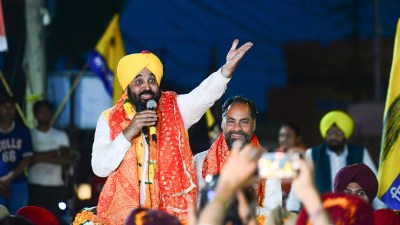
Exit polls suggest that the state of Punjab is expected to give majority of its seats to the INDIA bloc, with the Bharatiya Janata Party making significant gains while contesting alone for the first time since 1996. Punjab has a history of supporting the opposition party, but in 2014, it showed support for the Aam Admi Party by electing four of its MPs.

More Explained

Best of Express
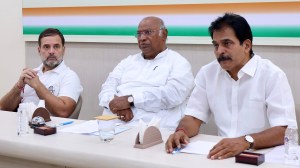
EXPRESS OPINION

Jun 02: Latest News
- 01 With exit poll results and BJP’s return, a message: North to South, the Indian voter has evolved
- 02 Rishabh Pant up the order, Arshdeep Singh with new ball, no room for Yashasvi Jaiswal: Win over Bangladesh in warm-up game hints at India’s tactics
- 03 BMC gears up for monsoon, deploys 481 dewatering pumps in low lying areas
- 04 Rahul writes to President against Agnipath scheme, urges her to intervene
- 05 Three agro firm owners, agent booked for duping Kandivali businessman of Rs 1.32 crore
- Elections 2024
- Political Pulse
- Entertainment
- Movie Review
- Newsletters
- Web Stories

- Corporate Account
A Salve for a Taxing Moment: The Vodafone Inside Story
How Vodafone won the tax case: The inside story of the courtroom battle
The court hearings had gone on through all of August. On September 8, 2010, the Bombay High Court was packed to the rafters with newspaper reporters of all hues. There was a battery of lawyers representing the Government of India and telecom giant Vodafone. There were two judges who had been hearing the famous Vodafone tax case: D.Y. Chandrachud and J.P. Devadhar. Though Devadhar was in Nagpur that day, he was ‘virtually’ present through a video link. Vodafone’s tax spearhead Desmond Webb was there. “Most reporters who had covered the hearing passed around early congratulations to us. They believed our counsels Harish Salve and Abhishek Manu Singhvi had done enough for the Bombay High Court to rule in our favour,” says a former Vodafone employee who was present in the courtroom. As the judgement began to be read out, there was some buoyancy in the Vodafone camp. The two judges did not think that Vodafone’s purchase of Hutch’s business was done in a manner to avoid taxes. The two judges also said that the shares that gave Vodafone control over Hutch’s telecom business in India were registered outside the country—in Cayman Islands. And then they turned their attention to the specific issue on which they were supposed to pass a judgement—that Indian tax authorities simply did not have any jurisdiction, any basis to even analyse the transaction. The judges said while they were convinced that Vodafone’s transactions were genuine, they were also quite sure that such a complex transaction needed more investigation. This was Vodafone’s Javed Miandad moment. The match was lost on the last ball. “We could not have been more disappointed. Three years had passed by and we had provided so much information and yet the issue was not settled,” says a Vodafone executive. The two people who were slugging it out—Mohan Parasaran on the side of the government and against him Harish Salve who was representing Vodafone—were both not there in the court that day. That would have to wait for another day. Perhaps no case in corporate history has evoked as much interest as the Vodafone tax case. For all the right reasons, one might add. For the first time in the history of free India, the Indian tax authorities were going after a fat-pursed multinational that had bought a business in India. In 2006, the Indian mobile telecom market was growing very rapidly. Every month more than 10 million subscribers were signing up to own a mobile connection. If you were a global telecom company, you had to have a piece of the Indian telecom action and you had to buy one of the top firms because in this industry bigger players make more money. The top dogs in the Indian market then were Bharti Airtel, Reliance Communications and Hutchison Essar. The former two were not selling. Hutchison was owned by the Hong Kong tycoon Li Ka-Shing and he was interested in exiting the business. Vodafone, the British telecom company, wanted to come into India. But others too wanted to buy Hutch to increase their market share. Reliance Communications definitely made a play for the firm. It was a tight finish and on February 12, 2007, Li Ka-Shing accepted Vodafone’s bid and Hutch was sold. That should have been the end of the matter. As things turned out, the sale was just the beginning. In September 2007, the tax authorities sent a letter to Vodafone. It had just one question for the British firm. Why hadn’t it kept aside money due to the Indian Income Tax Department? The first reaction in Vodafone headquarters was: “Huh? What taxes?” Indian tax authorities were only too happy to point out that while Vodafone and Hutchison Whampoa had done the deal outside India, in effect it involved the sale of an Indian asset—Hutchison Essar India Limited. Since Li Ka-Shing had made such a handsome profit on the sale, he should have given Vodafone the capital gains tax due on the transaction to keep aside for the Indian taxman. “The only thing that the senior management at Vodafone thought is ‘this is absurd!’ There is no precedent for this anywhere in the world. Why is the Income Tax Department coming after us?” says a Vodafone senior manager. What they didn’t know then was that one of Income Tax Department’s finest minds, Girish Dave, had been thinking about how India could benefit from mergers and acquisitions activity that involved an India angle. Dave retired from the department in 2010, but he was the director of international taxation at Mumbai between 2005 and 2009. That was when he decided to bell the offshore cat. More surprise was to follow. In the Union Budget of 2008-2009, the government gave a new meaning to something called “assessee in default”. Normally, this rule would apply if someone had collected taxes on behalf of the government, but forgot to deposit it with the government. For example, a company that had deducted income tax from its employees’ pay, but did not give the government that money. That was “assessee in default” before 2008. But after 2008, even if you were supposed to collect taxes on behalf of the government and had not collected it, you became “an assessee in default”. And this change would become effective from June 2002—five years before the Vodafone deal happened. Sniggering chartered accountants called it the Finance Ministry’s “Vodafone Amendment”. Vodafone decided to play the game with all the flair of Alistair Cook. They took the issue straight to the court. That’s when Girish Dave’s court alter-ego came into being: Mohan Parasaran, the additional solicitor general, Supreme Court of India. This sharp lawyer practiced in the Madras High Court in various branches of law and was also a professor of law at Presidency College. He became what Vodafone claimed about its network: Whichever court the company went to, Parasaran would follow them.

(This story appears in the 17 February, 2012 issue of Forbes India. To visit our Archives, click here. )
- " class="general-icons icon-sq-googleplus popup">
- " class="general-icons icon-sq-youtube">
SUBSCRIBE NOW

vodafone managers did infact withhold a part of the sale proceeds due to the hongkong biz tycoon, they just didn\'t deposit the taxes on basis of a risky legal opinion!
I think Salve should not have taken this up. This is going to stretch the goverment's finances and the already forecasted fiscal deficit would go up further. Government should pass fresh laws in proposed DTC, back date it and tax the above Vodafond-Hutch transaction. thanks
Brilliant piece of drafting. Well articulate and succinct write up explaining the stages of the case from germination to final conclusion. Kudos!
Photo of the Day: 2024 French Open
Photo of the Day: India's election comes to a close
From Grip Invest's securitised debt instruments to the legacy of Zardozi: Our most-read stories of the week
UN urges businesses to make progress on women's sexual health
At 8.2 percent, India's GDP growth continues to surprise
Can Jio subsidiary Radisys succeed in its ambitious 5G technology African venture?
Gen Z, the X factor and smartphones: Inside HMD's bold gambit
Seine still failing water tests two months from Paris Olympics
Career advice: How to become a "friction fixer"
Petcare brand Heads Up For Tails launches its first store in Singapore
RFK Jr. calls for end to 'hostile' crypto policies in US
Israel- Palestine: Two states, one long conflict
Bid to 'privatise' Brazil beaches sparks outcry
Photo of the day: World No Tobacco Day 2024
Air India: Arvind Jadhav took charge of Air India in 2009. But the airlines woes never ceased

Indian Journal of Law and Legal Research ISSN: 2582-8878 | PIF: 6.605 Indexed at Manupatra, Google Scholar, HeinOnline & ROAD

Indian Journal of Law and Legal Research
- Mar 2, 2022
Vodafone Tax Case: An Unending Tale Of Lessons

Dhwaja Shrivastava, Akshat Jain & Aadarsh Mittal
In the recent decades, the globalization has led to advent of companies operating in more than one nation. Such companies for long time have been hailed as the torchbearer of development of nations as they bring technological advancements, foreign investment etc. However, at the same time the rising concern for the governments is the persisting nature of companies to avoid paying the taxes. The situation is of such nature, that President of United states of America Joe Biden had to publicly admit that MNCs contribution to tax is negligible or zero.
The MNCs have the privilege of having companies in more than one nations, thereby it becomes easy for companies to route their finance through companies and it is general to carry out transaction between or amongst the different subsidiary company present in different countries. The consistency of such transactions upset the tax authorities of being unable to tax such transactions because of legal impediments.
The Vodafone tax case is a classic case study involving rounds of litigation, negotiations and arbitration. The present paper examines the relevance of Vodafone tax case in three sections, firstly it delves upon the litigation and ruling of Hon’ble Supreme court, secondly it examines the legislative response to the judgment in the form of amendment and test it on the basis of earlier precedent, thirdly, it delves upon the arbitrability of tax dispute as Vodafone invoked the arbitration clause existing bilateral investment treaty (BIT). The paper concludes by highlighting certain lessons that are taught by the conundrum of Vodafone tax case.
Keywords: Retrospective tax, Arbitrability, Investment Treaty.
- Volume IV Issue I
Abbreviation : IJLLR
ISSN: 2582-8878
Website: www.ijllr.com
Accessibility: Open Access
License: Creative Commons 4.0
Submit Manuscript: Click here
All research articles published in The Indian Journal of Law and Legal Research are fully open access. i.e. immediately freely available to read, download and share. Articles are published under the terms of a Creative Commons license which permits use, distribution and reproduction in any medium, provided the original work is properly cited.
Disclaimer:
The opinions expressed in this publication are those of the authors . They do not purport to reflect the opinions or views of the IJLLR or its members. The designations employed in this publication and the presentation of material therein do not imply the expression of any opinion whatsoever on the part of the IJLLR.
- Work & Careers
- Life & Arts
Become an FT subscriber
Try unlimited access only $1 for 4 weeks.
Then $75 per month. Complete digital access to quality FT journalism on any device. Cancel anytime during your trial.
- Global news & analysis
- Expert opinion
- Special features
- FirstFT newsletter
- Videos & Podcasts
- Android & iOS app
- FT Edit app
- 10 gift articles per month
Explore more offers.
Standard digital.
- FT Digital Edition
Premium Digital
Print + premium digital, ft professional, weekend print + standard digital, weekend print + premium digital.
Essential digital access to quality FT journalism on any device. Pay a year upfront and save 20%.
- Global news & analysis
- Exclusive FT analysis
- FT App on Android & iOS
- FirstFT: the day's biggest stories
- 20+ curated newsletters
- Follow topics & set alerts with myFT
- FT Videos & Podcasts
- 20 monthly gift articles to share
- Lex: FT's flagship investment column
- 15+ Premium newsletters by leading experts
- FT Digital Edition: our digitised print edition
- Weekday Print Edition
- Videos & Podcasts
- Premium newsletters
- 10 additional gift articles per month
- FT Weekend Print delivery
- Everything in Standard Digital
- Everything in Premium Digital
Complete digital access to quality FT journalism with expert analysis from industry leaders. Pay a year upfront and save 20%.
- 10 monthly gift articles to share
- Everything in Print
- Make and share highlights
- FT Workspace
- Markets data widget
- Subscription Manager
- Workflow integrations
- Occasional readers go free
- Volume discount
Terms & Conditions apply
Explore our full range of subscriptions.
Why the ft.
See why over a million readers pay to read the Financial Times.
International Edition
The Economic Times daily newspaper is available online now.
Consensus on settlement of voda tax case soon: government.
Vodafone through its counsel Anuradha Dutt sought liberty to proceed with the arbitration relating to this dispute if the settlement talks with the government fail, and requested clarification to the court's November 17, 2020, and December 8, 2020, orders relating to the case.

Read More News on
(Catch all the Business News , Breaking News , Exit Polls News , Election Results News Events and Latest News Updates on The Economic Times .)
Subscribe to The Economic Times Prime and read the ET ePaper online.

Will the RBI bring India’s gold back from London and Switzerland?

Is India the next global beauty retail destination?

Inside the unsettling chaos at the India-Myanmar border

One hit and some misses in Delhivery’s financials investors must know about

The 1000% club: Stocks with eye-popping returns you may have missed

The Altornate: It took 25 years for this tall boy to topple its sibling
Find this comment offensive?
Choose your reason below and click on the Report button. This will alert our moderators to take action
Reason for reporting:
Your Reason has been Reported to the admin.

To post this comment you must
Log In/Connect with:
Fill in your details:
Will be displayed
Will not be displayed
Share this Comment:
Stories you might be interested in
Vodafone Case Analysis
Case name: Vodafone international holding v/s Union of India Citation: 2009(4) Bom CR 258 - Date of decision: 07th May 2018 - Bench: Hon'ble Justice Manmohan Statues involved: Code of civil procedure (amendment) Act, 2002 Constitution of India (Article 31) - Constitution of India (Article 21) - The Arbitration Act,1940 - Company Act,2013 - Income Tax Act,1961 Background of the case: In February 2007, the Dutch company Vodafone International Holding (HIV) acquired a 100% stake in CGP Investments (Holding) Ltd (hereafter CGP), a Cayman Islands company for $ 11 billion from Hutchison Telecommunications International Limited. CGP manages 67% of an Indian company Hutchison Essar Limited ("HEL") through various conversion/practice law organizations. With this acquisition, Vodafone acquired control of CGP and its subsidiaries, including Hutchison Essar Limited. HEL is a joint venture of the Hutchison meeting and the Essar meeting. It had acquired telecommunications licenses to offer mobile communications in various circles in India from November 1994. In September 2007, Indian tax authorities sent an important message to Vodafone Company explaining why the HTIL tax had not been withheld from the previous transaction. The Tax Department states that the CGP share transfer transaction triggers the transfer or transfer of indirect assets in India. Vodafone specifically appealed to the Bombay High Court regarding the jurisdiction of the tax authorities in this case, and the court ruled that the Indian tax authorities are responsible for this case. The order was subsequently raised by the Supreme Court of India. In 2009, the court ordered the tax authorities to rule first on the jurisdictional issue presented in this case. In May 2010, the tax authorities stated that they had taken action against Vodafone on the grounds that they could not withhold taxes in accordance with Section 201 of the Income Tax Law. Vodafone argued the order in the Bombay High Court. The Bombay High Court dismissed Vodafone's appeal. Vodafone has filed a Special Leave Petition (SLP) for a Supreme Court ruling in accordance with Article 136 of the Constitution of India. The SLP was confirmed in November 2010. The Supreme Court also ordered Vodafone to deposit a total of 25,000,000 Indian rupees in three weeks and provide a bank guarantee of 85,000,000 for approximately two months from the date of the prescription. Observations made by the court
- The first observation that Supreme Court made was in respect to whether Indian Tax Authorities can put a tax on indirect transfer of capital assets situated in India? Section 9 (1) (i) of the Income Tax Act provides that all income which is earned or arises, directly or indirectly, from any business connection in India, or through or from any property in India, or through or from any asset or source of income in India or by the transfer of an asset located in India will be deemed to have been accrued or originated in India[1]. Regarding this Section 9 (1) (i), the Tribunal noted that the word indirect transfer is not present in Section 9 (1) (i) with respect to the transfer of fixed assets in India. Therefore, section 9 (1) (i) does not recognize the indirect transfer of fixed assets to India and therefore the court cannot cover the indirect transfer of fixed assets to India under this section. Therefore, the shares which have been transferred to CGP cannot be considered as a transfer of fixed assets in India and therefore the Indian tax authorities cannot apply taxes to them
- The second observation that the Supreme Court made was in respect with whether the transfer of HTIL's property rights by extinguishment through Sale Purchase Agreement (SPA)? The tax authorities alleged that HTIL had property rights that were terminated under the purchase contract signed on March 15, 2007, which makes the transfer of the fixed assets located in India taxable. But the Court observed in this case that the termination that occurred was due to the transfer of CGP shares and not to the clauses mentioned in the purchase contract. In addition, the Supreme Court ruled that CGP intended not only to own the shares of its subsidiaries but also to ensure a smooth transition of the company. Therefore, it cannot be said that CGP does not have commercial or commercial content. However, the tax authorities agree that some transfers by the CGP itself are not sufficient to achieve the purpose of transfers between HTIL and Vodafone, and that this type of transfer is a transfer of rights and other privileges and made argue that this type of established rights and privileges Fixed assets that generate capital gains and capital gains resulting from such transfers may be subject to tax.
- The third observation was with respect to the interpretation of Section 195 of Income Act, 1955 and whether Vodafone can be treated as a Representative Assessee under Section 163 of Income Act, 1955? In this observation, the Supreme Court established how to interpret section 195 of the Income Tax Act. It was interpreted that the tax issue should relate to the transaction in question and not to transactions that are unrelated to the transaction in question. The Supreme Court also interpreted that section 195 will only be applicable in cases involving payments or transactions made by an Indian resident to a non-resident and not the payment or transactions between two non-residents AND also when considering whether the transaction is subject to taxation or not, the legal aspects of the transaction should also be considered.
With regard to Section 163 of the Income Tax Law, the Supreme Court observed that the transaction which took place, in this case, was between two non-resident companies and that the transaction was also executed through a contract and that the consideration of a contract had also been accepted. outside India and therefore Vodafone International Holding does not fall within the scope of section 163 of the Income Tax Act 1955. Decision of the Supreme Court The Supreme Court of India upheld the landmark ruling in Vodafone International Holding (VIH) v. Indian Union (UOI). The bank, consisting of Supreme Court Justice SH Kapadia, KS Radha Krishnan, and Swatanter Kumar, overturned the High Court ruling of Rs 12,000 under capital gains tax and exempted HIV from the responsibility to pay 12,000 rupees in capital gains tax on the February transaction. 11 of 2007 between VIH and Hutchinson Telecommunication International Limited or HTIL (non-resident company for tax purposes). The court ruled that Indian tax authorities are not allowed to levy taxes on a foreign transaction between two non-resident companies in which the non-resident company acquires a controlling stake in a resident (Indian) company in the transaction. Judicial decision The sale of CGP shares by HTIL to Vodafone or HIV does not constitute a transfer of fixed assets within the meaning of section 2 (14) of the Income Tax Law and, therefore, all the rights and claims of the agreement. shareholders, etc., which are an integral part of GCP's shares, are not subject to any capital gains tax. The High Court's order to impose almost 12,000 rupees as a capital gains tax would constitute a capital punishment for capital investment and has no legal power and will therefore be repealed. Conclusion The Supreme court has issued a landmark ruling in Vodafone International Holding v Union of India and raised the uncertainty surrounding the introduction of taxes. With this ruling, the Supreme Court recognized:
- The principles of tax planning companies or individuals can regulate the activities of their company in such a way as to reduce their tax liability in the absence of legal provisions that prohibit it.
- The corporate veil can be lifted if the facts and circumstances reveal that the transaction or the corporate structure is false and taxes should be avoided.
- Transactions should be viewed holistically rather than dissected, and the existence of corporate structures in tax neutral / investor-friendly countries should not lead to the conclusion that they should avoid tax.
In the end, it can be said that this decision helped eliminate uncertainties about the introduction of taxes and recognized the principle that the motive for the operation to evade taxes is not necessarily the acceptance of tax evasion and the Supreme Court argued in favor of legitimate tax planning. Submitted by, End-Notes:
- Income tax act,1955
Written By: Udita Prakash , 3rd year student at UPES, Dehradun
Law Article in India
Please drop your comments, you may like.
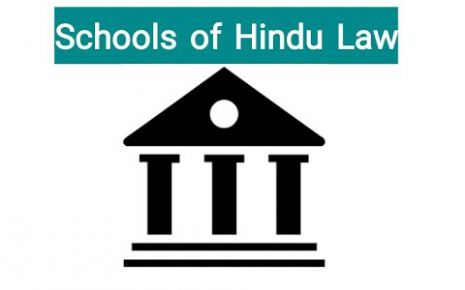
Effect of partition by seve...

Understanding the Basics of...

Breaking Monopolies, Empowe...

Awarding Police Medals: Tim...

Examining Different Types o...
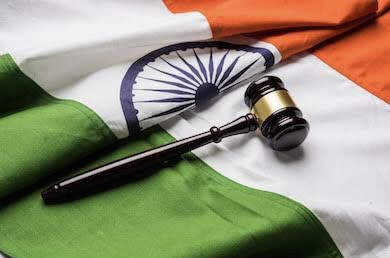
Arunachala Gounder (Dead) b...
Legal question & answers, lawyers in india - search by city.

Law Articles
How to file for mutual divorce in delhi.

How To File For Mutual Divorce In Delhi Mutual Consent Divorce is the Simplest Way to Obtain a D...
Increased Age For Girls Marriage

It is hoped that the Prohibition of Child Marriage (Amendment) Bill, 2021, which intends to inc...
Facade of Social Media

One may very easily get absorbed in the lives of others as one scrolls through a Facebook news ...
Section 482 CrPc - Quashing Of FIR: Guid...

The Inherent power under Section 482 in The Code Of Criminal Procedure, 1973 (37th Chapter of t...
The Uniform Civil Code (UCC) in India: A...

The Uniform Civil Code (UCC) is a concept that proposes the unification of personal laws across...
Role Of Artificial Intelligence In Legal...

Artificial intelligence (AI) is revolutionizing various sectors of the economy, and the legal i...

File caveat In Supreme Court Instantly

COMMENTS
Exind Trading P. Ltd, Mumbai vs Ito 6(2)(4), Mumbai on 7 November, 2019 It was held that the Vodafone case and CBDT Circular was not applicable in this case. 3. Income Tax Appellate Tribunal - Mumbai. Income Tax Officer-1(3) (2), … vs Singhal General Traders Private … on 24 February, 2020
Vodafone challenged the demand notice in the Bombay High Court, which ruled in favour of the Income Tax Department. Then, Vodafone challenged the judgment in the Supreme Court, which in 2012 ruled that Vodafone Group's interpretation of the Income Tax Act of 1961 was correct and that it did not have to pay any taxes for the stake purchase.
Rules applied in the case . Section 9(1)(i) of the Income Tax act, 1995: The provision, mentions income arising directly or indirectly from any business connection situated in India or through the transfer of capital assets situated in India is considered taxable.. Section 195 of the Income Tax act, 1995: The provision, mandates the person who is responsible to pay a non-resident or a foreign ...
On September 25, 2020, the international arbitral tribunal constituted in the case of Vodafone International Holdings BV v. The Republic of India (Vodafone case) held that India had violated the 'fair and equitable treatment' ... Section 195 of the Income Tax Act, 1961. Since VIHBV failed to withhold Indian taxes on payments made to the ...
ECONOMY/ GOVERNANCE/ INTERNATIONAL Topic: General Studies 3: Indian Economy and issues relating to planning, mobilization, of resources, growth, development. Government policies and interventions for development in various sectors and issues arising out of their design and implementation. Retrospective taxation: the Vodafone case Context: The Permanent Court of Arbitration at The Hague gave a ...
Laws involved in Vodafone Idea arbitration case Income Tax Act, 1961 Section 9. The Income Tax Act governs and collects capital gains tax on any transaction that takes place or accrues from an Indian asset. Any income that accrues out of such a transfer of shares can be taxed under the Income Tax Act calling it the capital gains tax.
The Vodafone case had been covered in ambiguity till 2012. Thereafter, a new development after some point prompted the fight in court between the Indian Income Tax Department on the one side and Vodafone on the other for the cosmic figure of Rs. 12,000 Crores which caused a stir of numerous business in India.
An explainer on the Vodafone Tax Saga. An explainer on the Vodafone Tax Saga. SUBSCRIBE. 28 September 2020 / Business Vodafone Tax Saga explained. In today's Finshots, we talk about the latest ruling on the Vodafone Tax matter and explain the whole case in as few words as possible. So hold tight. This one is going to get bumpy!!! Business.
Indian retrospective tax legislation — Amendments to the Income Tax Act consistent with global initiatives to tax indirect transfer of assets After the judgment of the Supreme Court in Vodafone case 5 in 2012, the Indian Parliament passed the Finance Act, 2012 , which gave inter alia to the addition of two clarifications in Section 9(1)( i ...
In hindsight, the infamous Finance Act, 2012 which amended the Income Tax Act, 1961, was the root cause of this debacle that arouse primarily when the Indian government decided to invoke GAAR and retrospectively tax Vodafone to the tune of approximately 11,000 Crore ₹. The author in this research paper intends to review this deal including ...
Vodafone challenged the demand notice in the Bombay High Court, which ruled in favour of the Income Tax Department. Subsequently, Vodafone challenged the High Court judgment in the Supreme Court, which in 2012 ruled that Vodafone Group's interpretation of the Income Tax Act of 1961 was correct and that it did not have to pay any taxes for the stake purchase.
The Vodafone case, involving the indirect sale of shares of an Indian company by upper tier non-Indian corporations, focused attention on the extraterritorial reach of India's taxing power. While the decision is ostensibly a victory for taxpayers who do business in India, the case may be a harbinger of tax concerns in India and other countries.
legal battle between the Indian Income Tax Department on the one side and Vodafone on the other for the astronomical figure in question: Rs. 12, 000 Crores which raised the eyebrows of many business and legal circles in India. There wasn't any case of much gravity before Vodafone pertaining to Tax dispute in India. In
The government has notified a fresh set of rules to facilitate settlement of the retrospective tax dispute with British telecom giant Vodafone Plc. The Central Board of Direct Taxes (CBDT) on ...
Through 2008 and 2009, the courts maintained that, on the face of it, the Indian tax authorities were well within their right to pursue the case against Vodafone.
Landmark Supreme Court verdict in the Vodafone case Background The Supreme Court of India (SC) has rendered its judgment in the much awaited verdict in the US $ 2 billion Vodafone tax case [S.L.P. (C) No. 26529 of 2010]. In one of the most high profile cross border tax litigation involving taxability of a
The Vodafone tax case is a classic case study involving rounds of litigation, negotiations and arbitration. The present paper examines the relevance of Vodafone tax case in three sections, firstly it delves upon the litigation and ruling of Hon'ble Supreme court, secondly it examines the legislative response to the judgment in the form of amendment and test it on the basis of earlier ...
Vodafone has won a long-running dispute with the Indian tax authorities which argued that the UK telecoms group should pay almost €3bn in back taxes and penalties related to its 2007 acquisition ...
Reuters. Vodafone. The government on Wednesday told the Delhi High Court it will soon "arrive at a consensus" to settle a Rs 4,250-crore transfer pricing taxation demand raised on Vodafone India Services (VISPL). Vodafone through its counsel Anuradha Dutt sought liberty to proceed with the arbitration relating to this dispute if the settlement ...
Hello People,For All Updateshttps://t.me/bbsirdtFor Lecture Relates Queries https://www.BhanwarBorana.com/Follow us on Social MediaFacebook - https://www.fac...
The Supreme Court of India upheld the landmark ruling in Vodafone International Holding (VIH) v. Indian Union (UOI). The bank, consisting of Supreme Court Justice SH Kapadia, KS Radha Krishnan, and Swatanter Kumar, overturned the High Court ruling of Rs 12,000 under capital gains tax and exempted HIV from the responsibility to pay 12,000 rupees ...
Enrol to StudyIQ's Flagship UPSC IAS (Pre + Mains) LIVE Foundation Batch 9. Admissions closing on 10 DEC'22 | Enrol now - https://bit.ly/upscbatch9A time-te...